The best anime movies enchant and elicit wonder in equal measure. Whether they are epic fantasy adventures or mind-bending, time-hopping romances, there are dozens upon dozens of feature-length classics ready and waiting for you to discover from across the decades.
But where should you start? To help guide you, we’ve curated a collection of the 30 best anime movies that you can watch right now. Alongside new releases and more obscure picks, the list below accounts for historical significance, general acclaim, audience reaction, and, of course, our own personal preference. You never know: you might just find your new favorite movie, whether you’re a newcomer or someone well-versed in the history of Japanese animation.
Before we begin, a caveat: This won’t be a selection filled solely with Studio Ghibli movies (as much as we’d love to). Instead, our rankings of the greatest anime movies are filled with equal opportunities to not only experience the very best anime has to offer on the big screen, but also a chance to broaden your horizons – from Akira to Your Name, and everything else in between.
For more, be sure to dive into our other best-of lists from the world of anime, including the best anime shows. Then, with an eye towards the future, dive into our complete guide to the new anime coming your way very soon.
30. The Girl Who Leapt Through Time
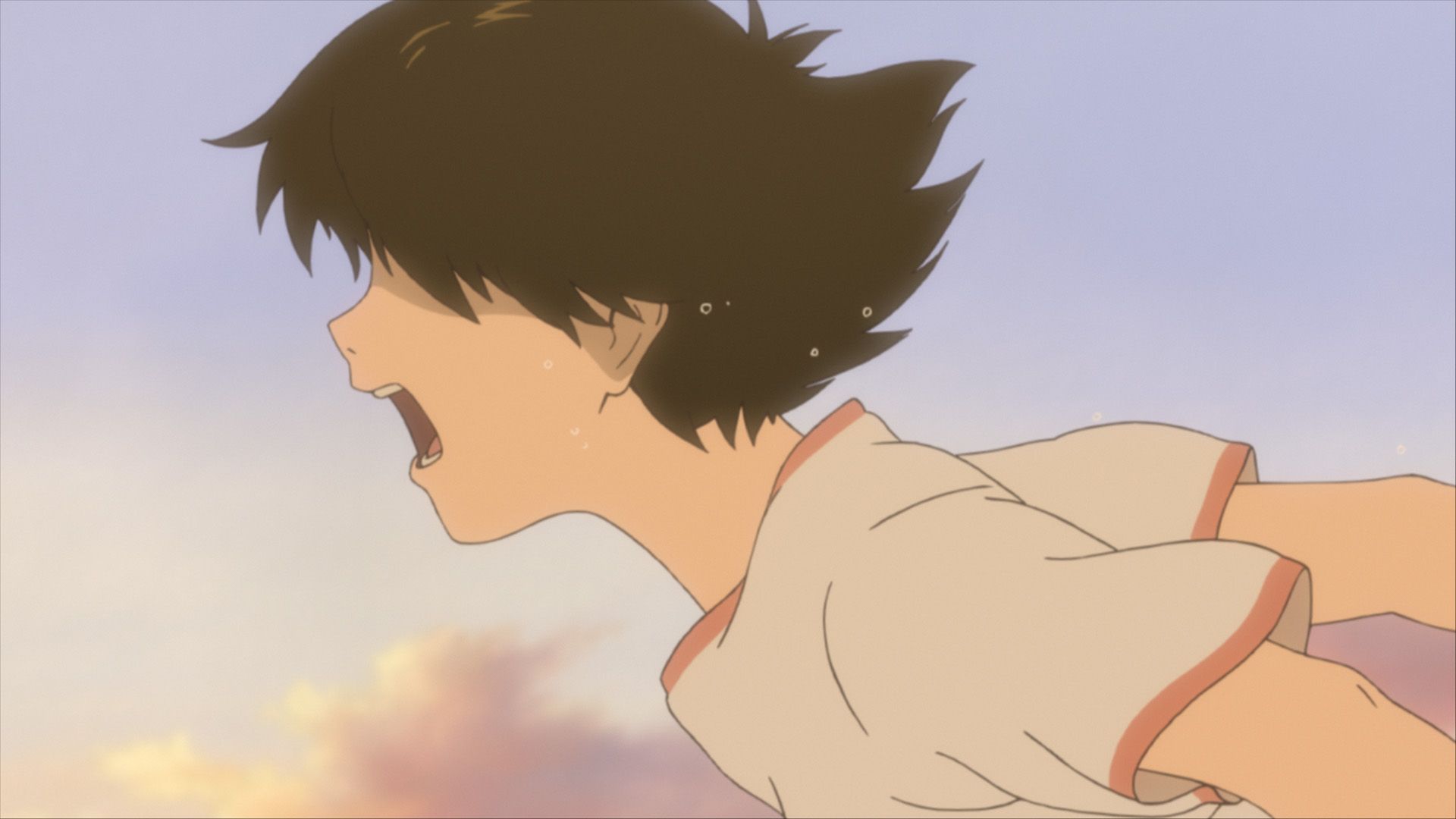
Year: 2006
Director: Mamoru Hosoda
Kicking off this list is The Girl Who Leapt Through Time, a Groundhog Day-style time loop adventure that sees teenager Makoto bestowed with the ability to reset time – seconds before being hit by a train. While her first attempts to ‘time leap’ are cheap and unnecessary, Makoto’s discovery that her powers are finite soon turn the movie into a faintly tragic tale that mirrors Steins;Gate’s and its heroes’ inability to avert disaster.
Bundled with a strong love story and endearing protagonist, The Girl Who Leapt Through Time, ironically, feels like a movie that is caught in a temporal limbo. The 2006 release missed out on the late ’90s and early ’00s wave of renewed interest in anime, while it would have undoubtedly been a wider success if it were released today. Maybe it’s time to seek it out for yourself and experience this anime-hidden gem.
Discover more time-bending thrills with these best sci-fi movies.
29. Jujutsu Kaisen 0
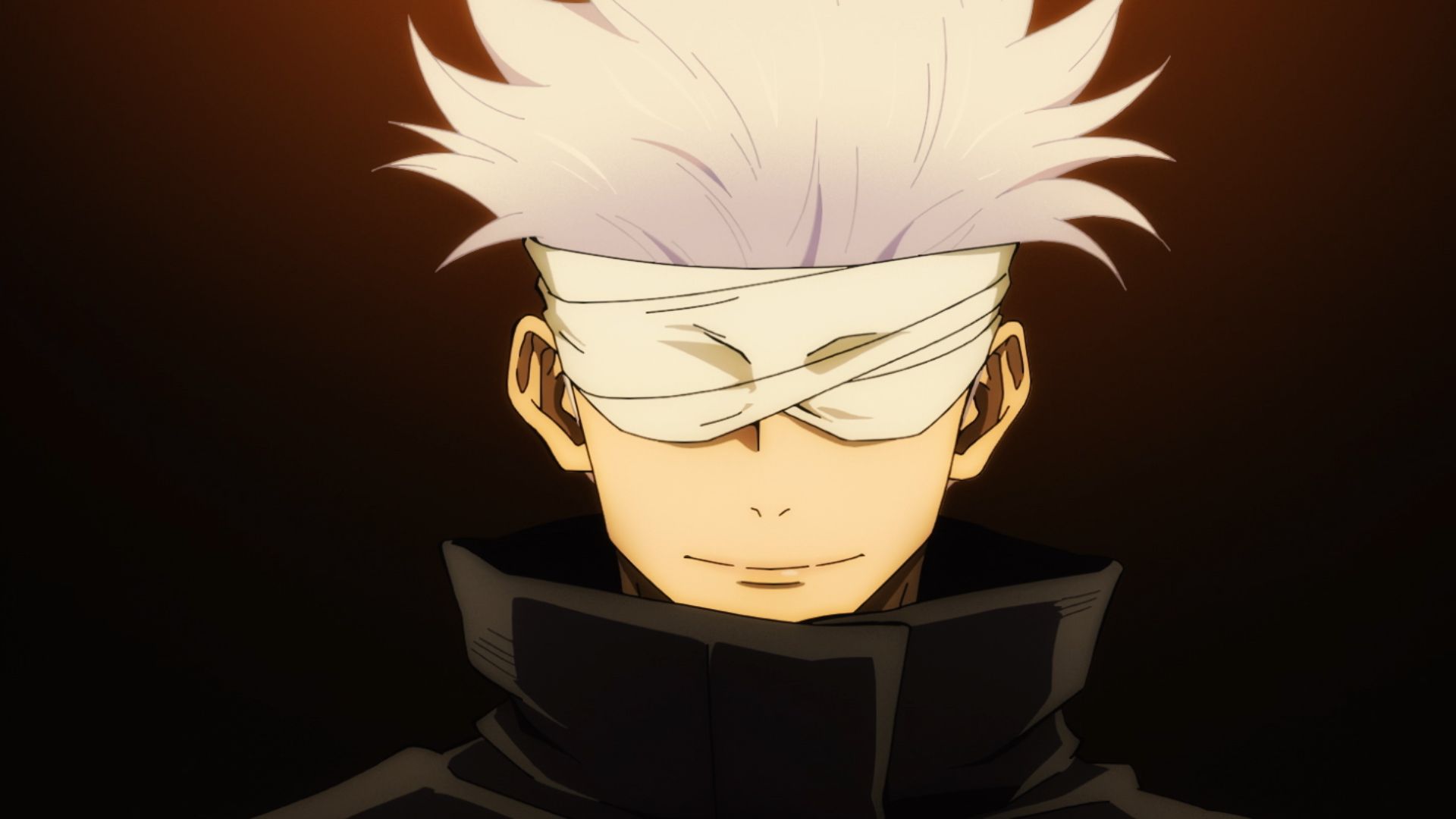
Year: 2021
Director: Sunghoo Park
Prequels, by their very nature, can be predictable and meandering affairs. Thankfully, Jujutsu Kaisen 0 is more in line with Better Call Saul in terms of how it approaches things, taking prominent characters – in this case, sorcerers Goto and Geto – and enriching their stories to deliver a beautifully-told chapter through the lens of shy sorcerer-in-training, Yuta.
Being based on a popular ongoing anime, it’s of little surprise that Jujutsu Kaisen 0 cut through in the (relative) mainstream when it was released in cinemas, grossing almost $200m at the box office. Its style and flair are obvious highlights, though the accessibility of the horror-tinged prequel to newcomers should not go overlooked. Jujutsu Kaisen has plenty more to come, but it might never be better than this standalone prequel.
See what’s next with our guide to Jujutsu Kaisen season 3.
28. The First Slam Dunk
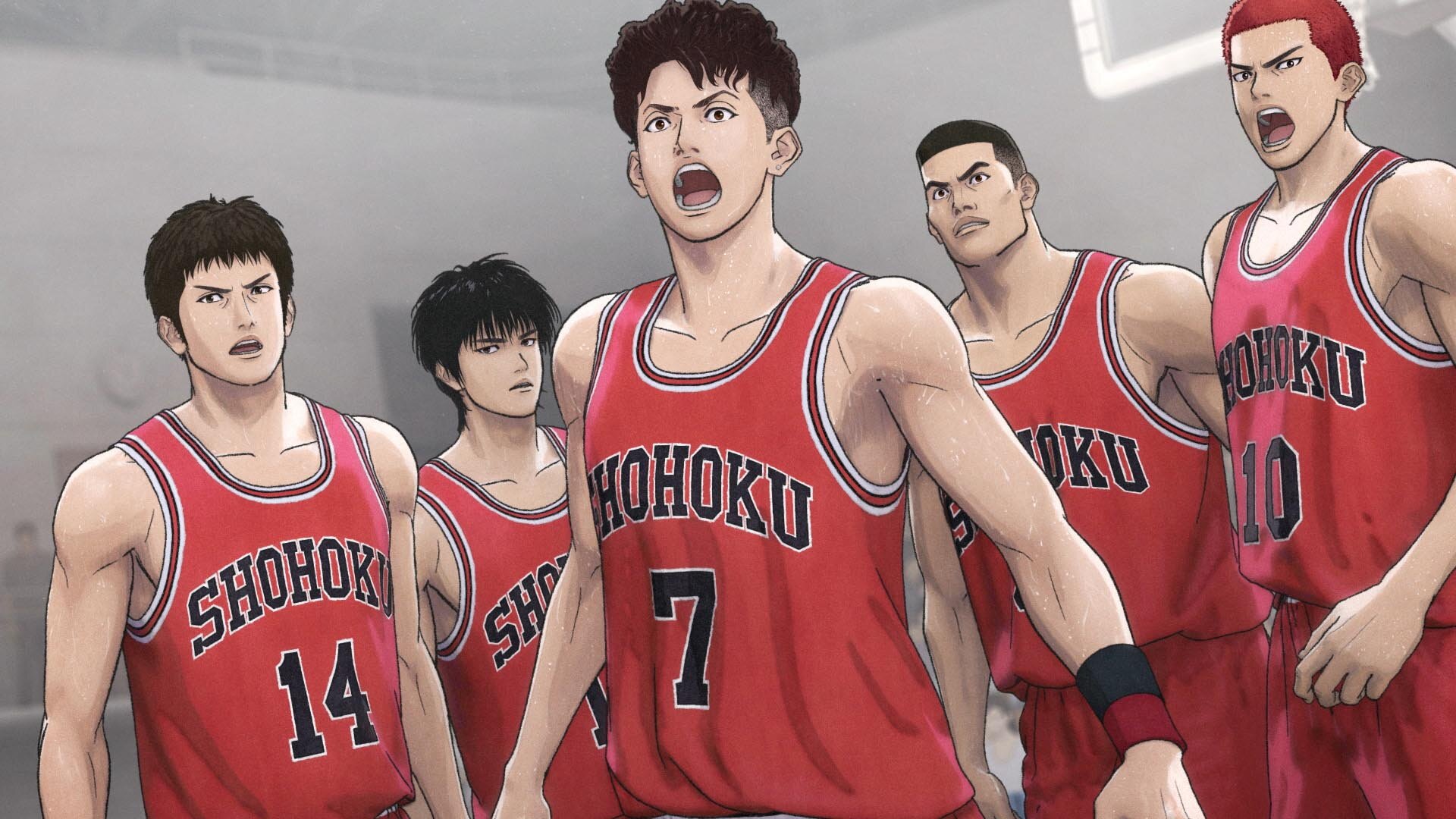
Year: 2022
Director: Takehiko Inoue
Remixing the finale of an anime and manga series that hasn’t been seen since the mid-’90s doesn’t exactly seem like, well, a slam dunk. But, against all the odds, The First Slam Dunk is a Last Dance-style success story. The feature film, which grossed almost $280 million worldwide, takes the series’ final match – between Shohoku and Sannoh high schools – and gives it the big-budget treatment, making every rebound, foul, and shot feel extra impactful with its fluid animation.
But The First Slam Dunk’s greatest triumph is in how it treats point guard Miyagi. Readers and viewers of the original story will still have some affinity with the player. Still, the 2022 movie goes further, unpicking his motivations for the sport from his first steps onto the court through to the final buzzer.
27. In This Corner of the World
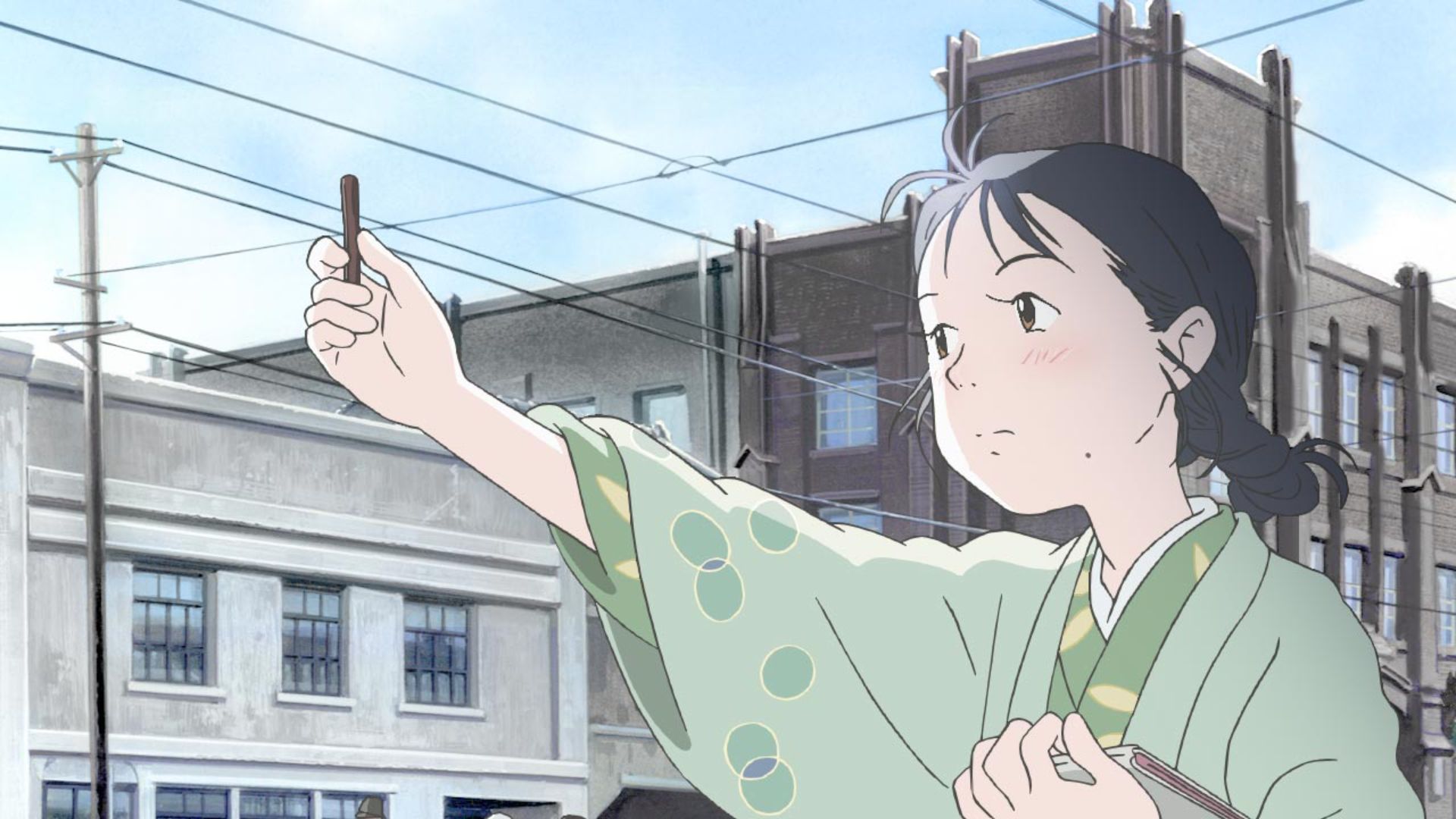
Year: 2016
Director: Sunao Katabuchi
Unfortunately for Hiroshima, its lasting image is one of destruction. In This Corner of the World, though, opts for the path less traveled by opening up the more personal side of its culture and citizens in the lead-up to August 6, 1945. Japan has long made incredibly poignant art out of the gaping trauma of World War Two’s nuclear attacks, but few are as heart-wrenching or as unflinching in their portrayal of the boots-on-the-ground impact on its people.
As newly-married Suzu settles into her new life just outside the town of Hiroshima, she soon encounters the disrupting nature of wartime measures. Of course, viewers will be acutely aware of the irony of the town’s initial grumbles, but few will be ready for the wave of violence and destruction to come. In This Corner of the World culminates in a series of sadly predictable events that, though immensely sad, blossoms into something surprisingly touching against all the odds – and stands as a lasting testament to the power of anime and the secret stories it can tell.
Discover tales of combat on the frontline and beyond with the best war movies.
26. Violet Evergarden: The Movie
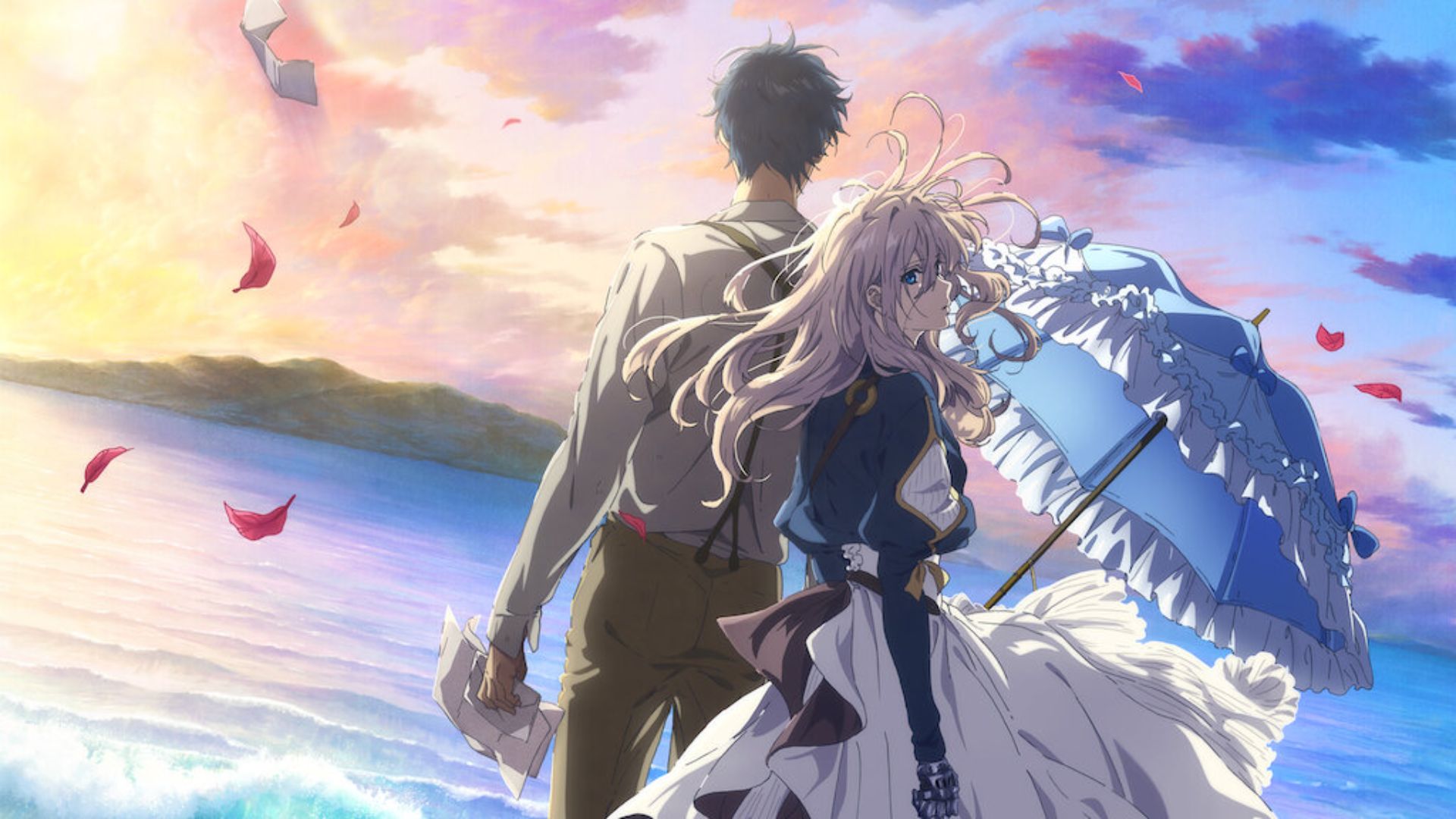
Year: 2020
Director: Taichi Ishidate
The sequel movie to Netflix’s Violet Evergarden rounds out the story of Violet, an ex-soldier who later finds a career as an Auto Memory Doll. In the job (and in the mainline series), she spends her days finding ways to help others find connection through letter-writing. The movie, though, flips the script and allows her to finally discover the meaning of the words ‘I love you’.
Kicking off with a clever framing device that pays tribute to the episodes that preceded it, Violet Evergarden: The Movie soon charts its own path as Violet goes off to find her one-time superior Gilbert, a man she previously had thought to have been dead and the subject of some serious complicated feelings. For some, Violet Evergarden can be overly sentimental and saccharine, but the movie reins in a little to pay off its overarching story in satisfying fashion – with one of anime’s great reunions thrown in for good measure.
Violet Evergarden forms part of our collection of best anime on Netflix.
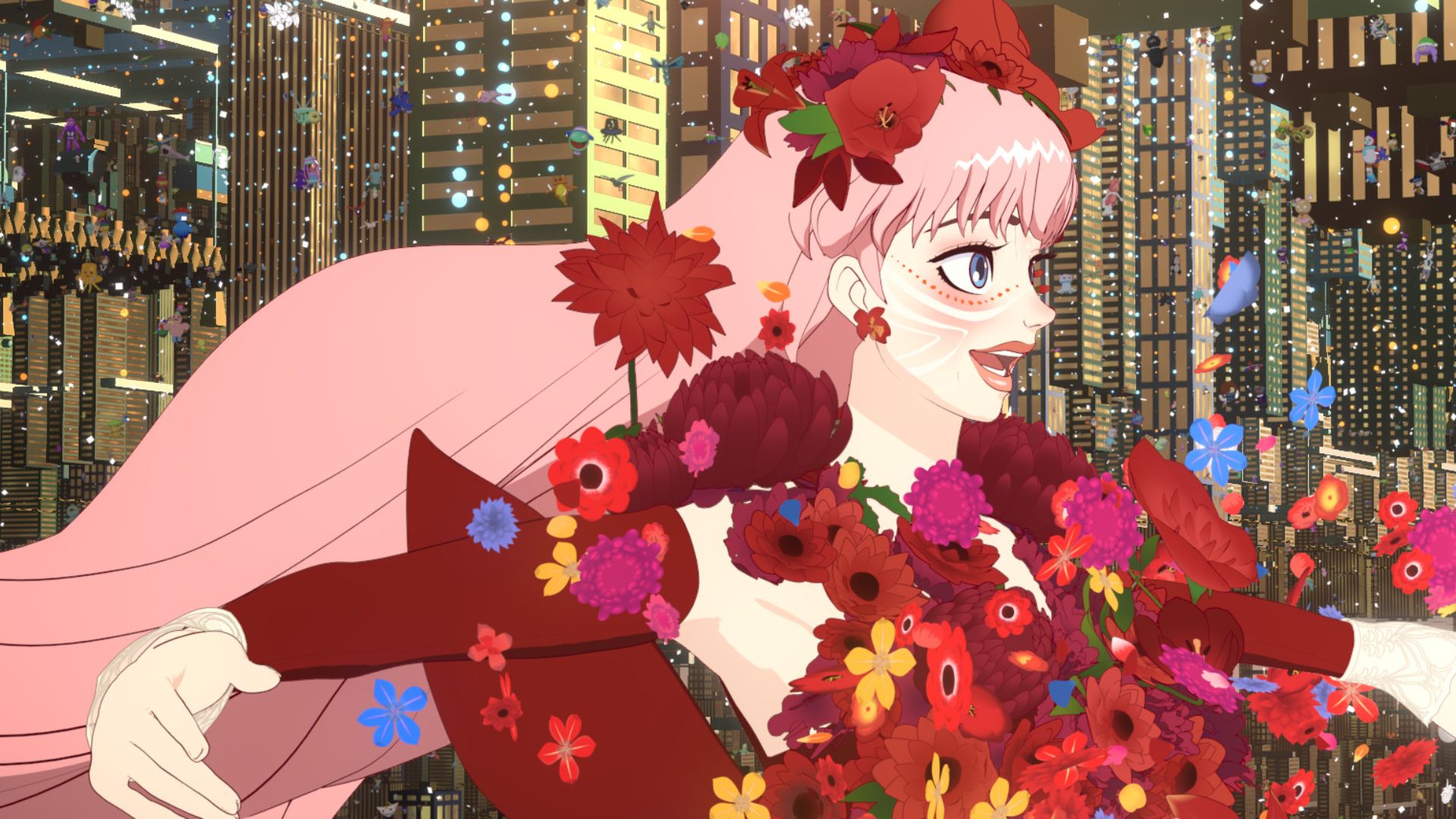
Year: 2021
Director: Mamoru Hosoda
The past decade of anime has been largely dominated by sporadic Studio Ghibli releases and the works of Makoto Shinkai. Belle, then, comes crashing in relatively out of nowhere and takes its lead Suzu on a whirlwind journey from an angry, lonely teenager to a virtual pop idol, the likes of which would make even hardcore Swifties sit up and take notice.
Laced with big, poppy energy and maximalist visuals, Belle undercuts the loud, vibrant virtual world of ‘U’ with a darker twist as an ultra-powerful user named Beast (yes, this is a twisted Beauty and the Beast pastiche) crashes the fantasy. From there, director Mamoru Hosoda skilfully uses Belle’s plight to hold up a mirror to a contemporary world held in the grip of social media, the new age of celebrity, and – in something that feels even more prescient today – the anonymous anger of faceless personas.
24. Patlabor 2
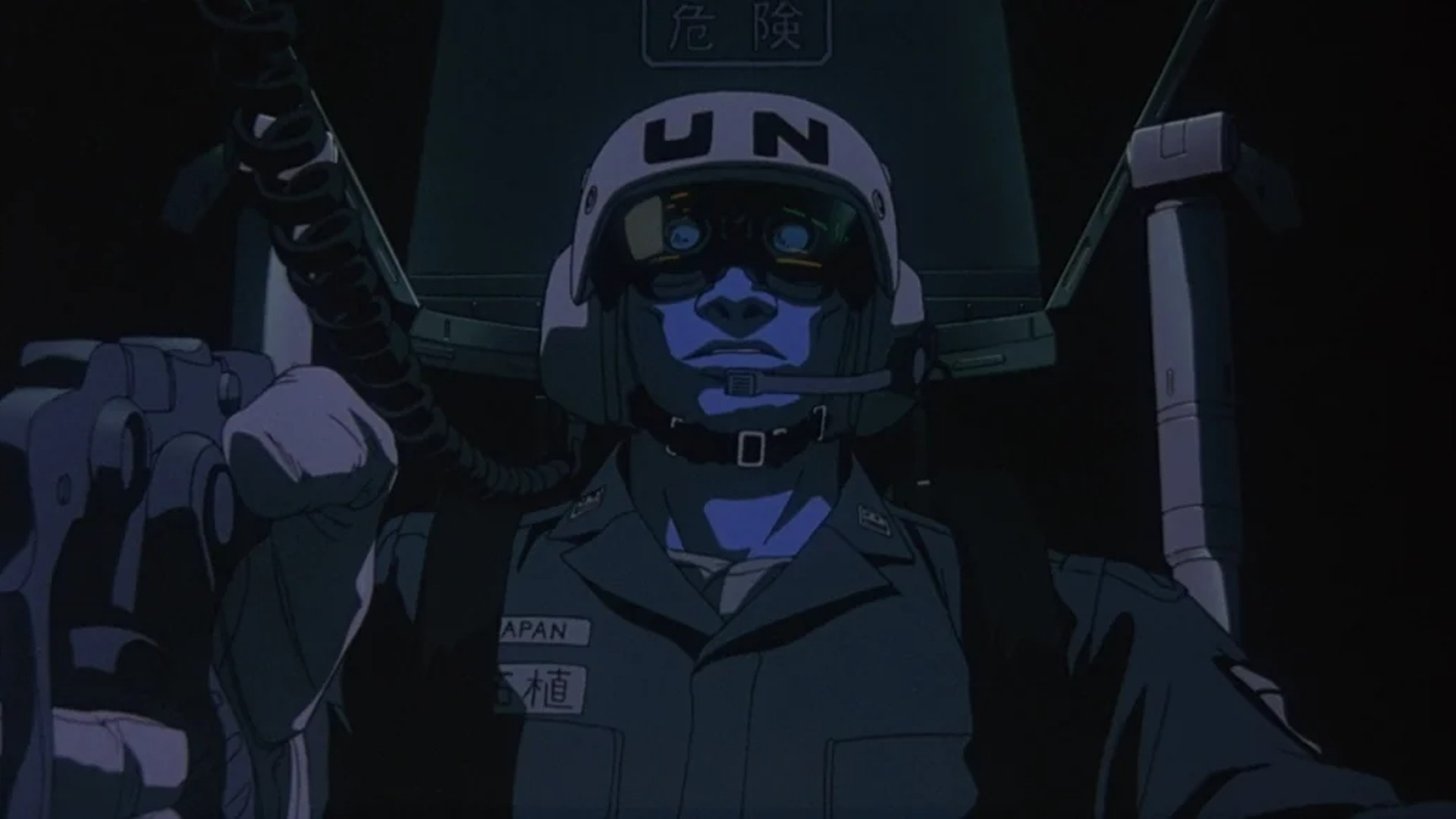
Year: 1993
Director: Mamoru Oshii
Where the original Patlabor is more of a by-the-numbers mech action flick, its 1993 sequel unspools into a tense political thriller that makes good on the potential of its universe (here, Tokyo’s police force use ‘Patlabors’, or Patrol Labors, to keep the peace).
Patlabor 2, then, coolly meshes the rip-roaring action of the first movie with a more introspective, historical bent as a terrorist attack cripples Tokyo. Its critiques on Japanese’s softening military might be lost on a portion of its audience, but it acts as the perfect gateway into a sci-fi world that isn’t afraid to go the blockbuster route to communicate big ideas, in much the same way some of the 21st Century’s great directors – Nolan, Villenueve, to name but a few – would grasp a few years later.
23. Haikyu: The Dumpster Battle
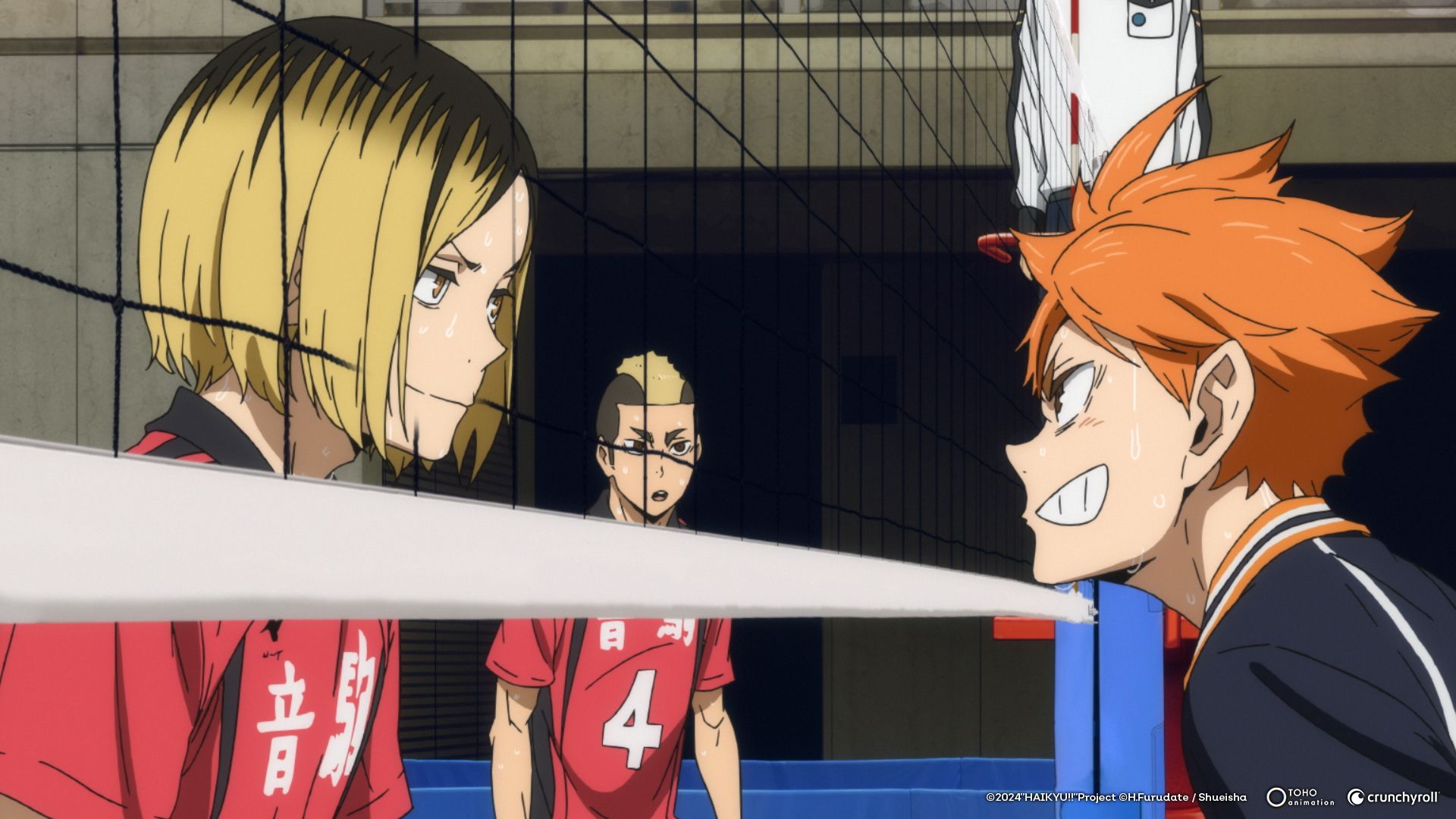
Year: 2024
Director: Susumu Mitsunaka
There were sports crowd-like whistles of derision when it was announced that Haikyu would be ending its volleyball saga with two movies instead of finishing up with the anime series. Those fears were misplaced. The Dumpster Battle – the latest installment in the eternal rivalry between schools Karasuno and Nekoma – is able to take center stage on the most worthy of courts: the big screen.
With standout animation from Production I.G. that exceeds even the studio’s lofty standards, The Dumpster Battle serves up a pulsating match-up between the two teams as middle blocker Hinata aims to surpass his hero, the ‘Little Giant’. Sports anime has, arguably, never reached the heights of the first Haikyu movie – and we’re locked in for whenever Hinata’s journey comes to an end in the near future.
For more, check out our guide to Haikyu: The Dumpster Battle.
22. Look Back
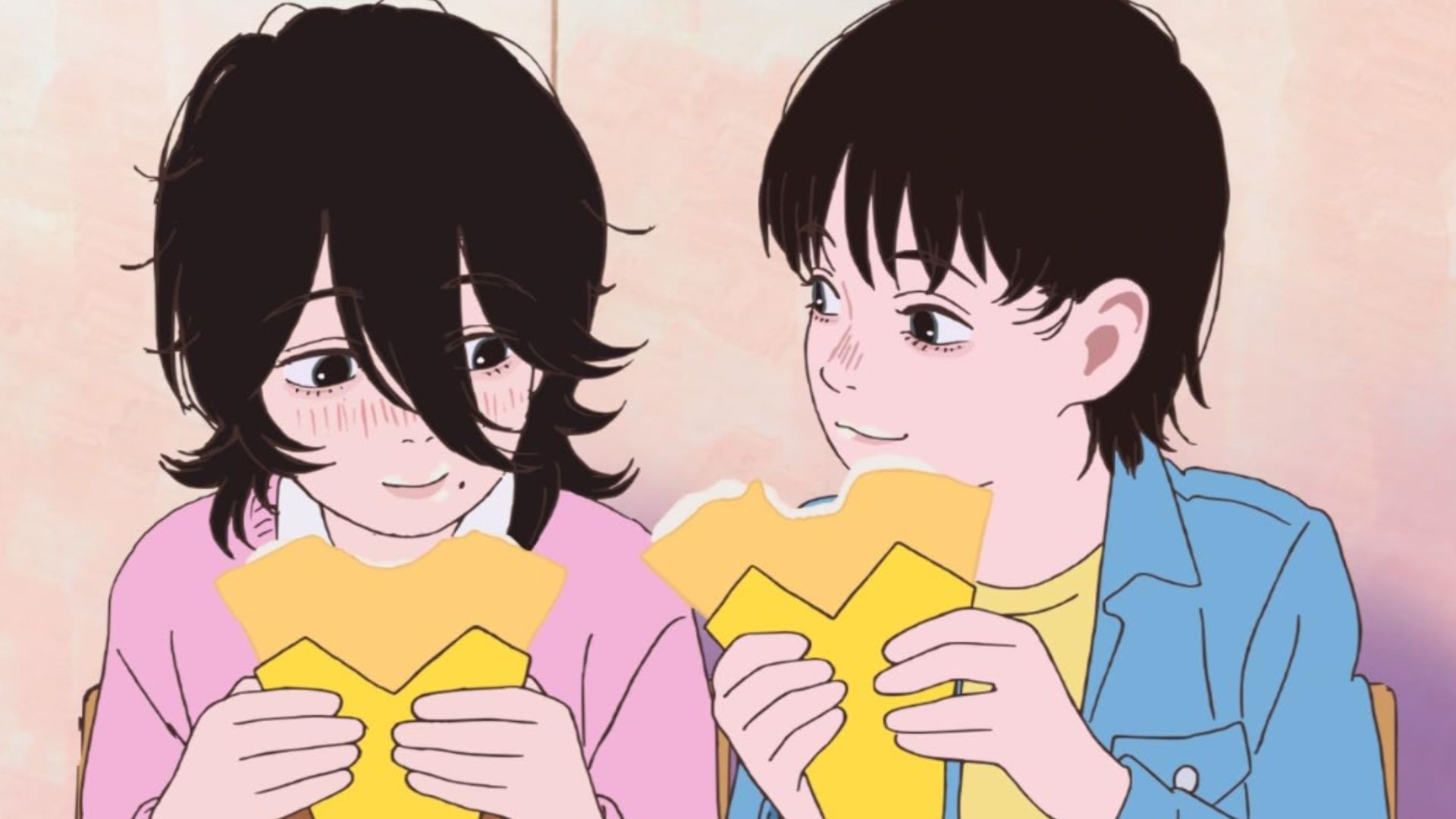
Year: 2024
Director: Kiyotaka Oshiyama
The most recent entry on this list, Look Back is a pitch-perfect adaptation of a one-shot manga from Chainsaw Man’s Tatsuki Fujimoto. But where Chainsaw Man is all gore, cinematic aspirations, and kinetic action, Look Back is a slower, more methodical commentary on art and loss. What begins as a childhood obsession for Fujino as she scribbles panels for her school newspaper’s manga soon unravels into fiercely one-sided rivalry with shut-in classmate Kyomoto. From there, a surprise kinship blooms between the pair.
Brought together by their love of drawing, the beautifully-depicted friendship is a triumph of connection, one that suddenly comes crashing down after tragic circumstances inspired by real-world events. At once a wistful, nostalgic piece and a forward-thinking, crushing meditation on the impact of art, Look Back is an instant classic – and audiences may look even more favorably on it in the years to come.
Look Back stands tall in our ranking of 2024’s best movies.
21. Cowboy Bebop The Movie: Knockin’ on Heaven’s Door
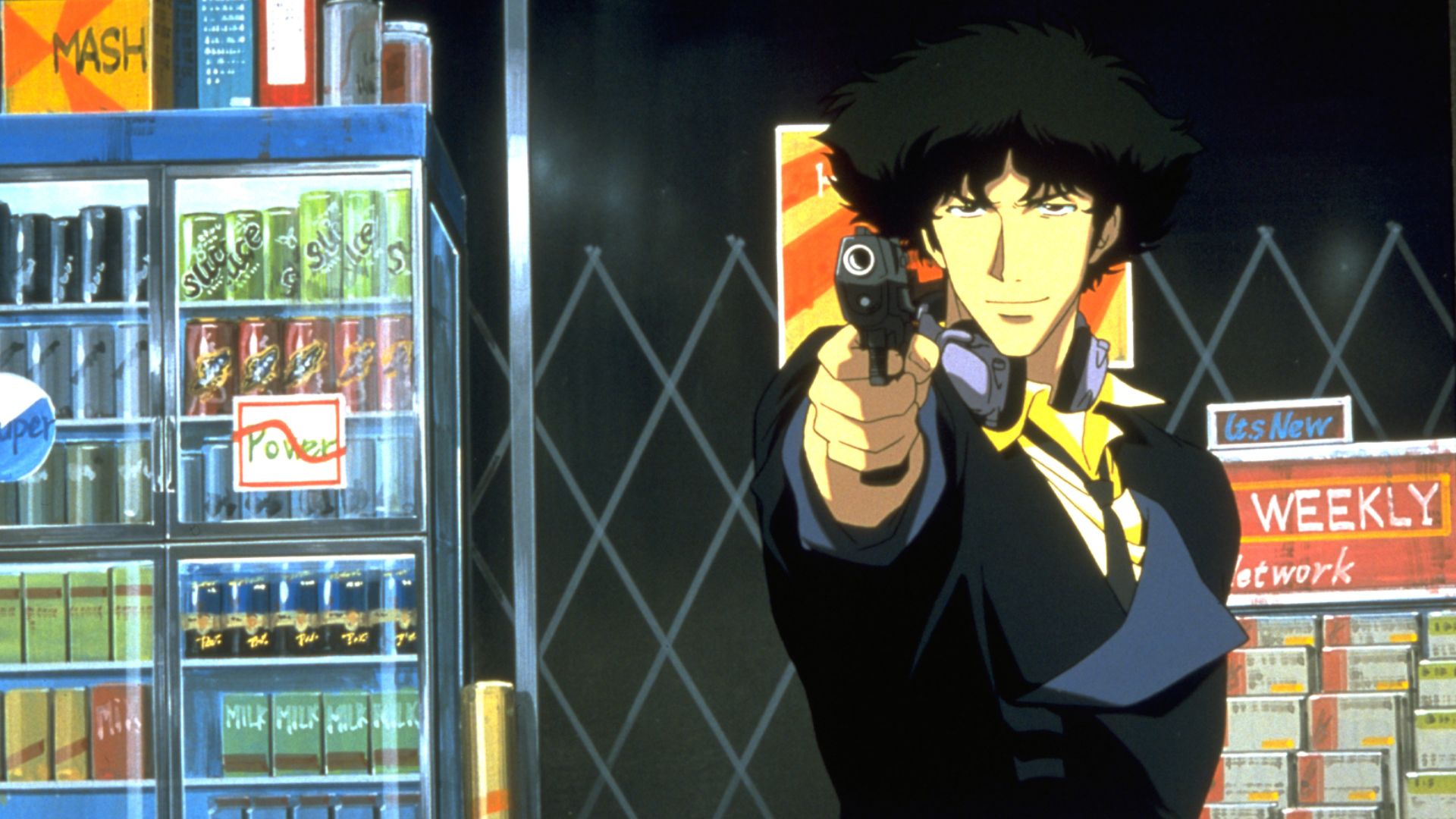
Year: 2001
Director: Shinichirō Watanabe
You may have at least heard of Cowboy Bebop, the sci-fi series that blends together jazz, an eclectic ensemble cast, and a galaxy’s worth of space bandits to craft what is – for many – the best anime series ever made. You may be less familiar with its later feature-length adventure, however.
Slightly awkwardly wedged into the events of the main series so as to not break canon, Knockin’ on Heaven’s Door sees the motley crew of Spike, Jet, Faye, Ed, and Ein on the hunt for a biological terrorist. In truth, it doesn’t deviate too much from Bebop’s typical winning formula, but its greatest strengths – the action, the effortlessly cool vibes – are writ large here. If you can spare a few Woolongs, it’s absolutely worth dipping into Cowboy Bebop The Movie for a big-screen bounty like no other.
Cowboy Bebop director Shinichirō Watanabe says his forthcoming anime Lazarus is his masterpiece.
20. Metropolis
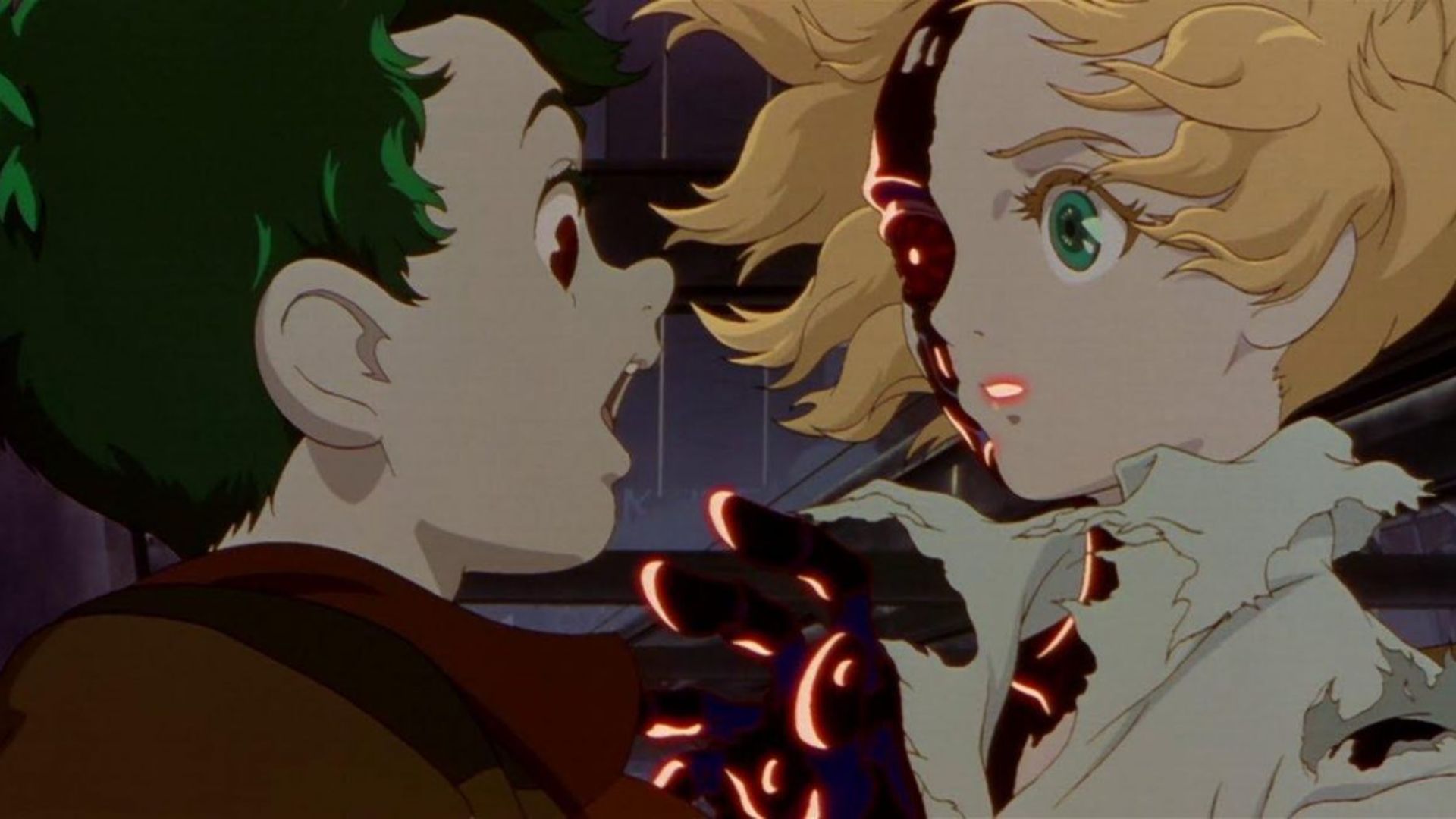
Year: 2001
Director: Rintaro
While its connections to the 1927 Fritz Lang trailblazer are loose (and, if you believe the author of the 1949 manga on which the 2001 movie is based, entirely coincidental) Metropolis similarly helped pave the way for anime with a dazzling film that stood out as one of the 21st Century’s first essential anime movies. Its biggest success? Laying down a stylistic blueprint for an industry that would soon look to the far-flung future for commentary on its present moment.
In many ways, Metropolis works off the same hymn sheet as Akira: a downtrodden future megacity, people ruled with an iron fist, and coursing with a rebellious streak. What makes the Rintaro-directed effort stand out, however, is its personal touch. Faced with a dictator father who has grand schemes to overthrow the planet using a weapon designed to look like his deceased daughter, his adopted son Rock battles to reclaim what’s his in a pulsating blockbuster. It all culminates in one of anime’s most striking scenes, a Ray Charles-backed sequence as the city crumbles – an electric ending to a modern-day masterpiece.
19. Tokyo Godfathers
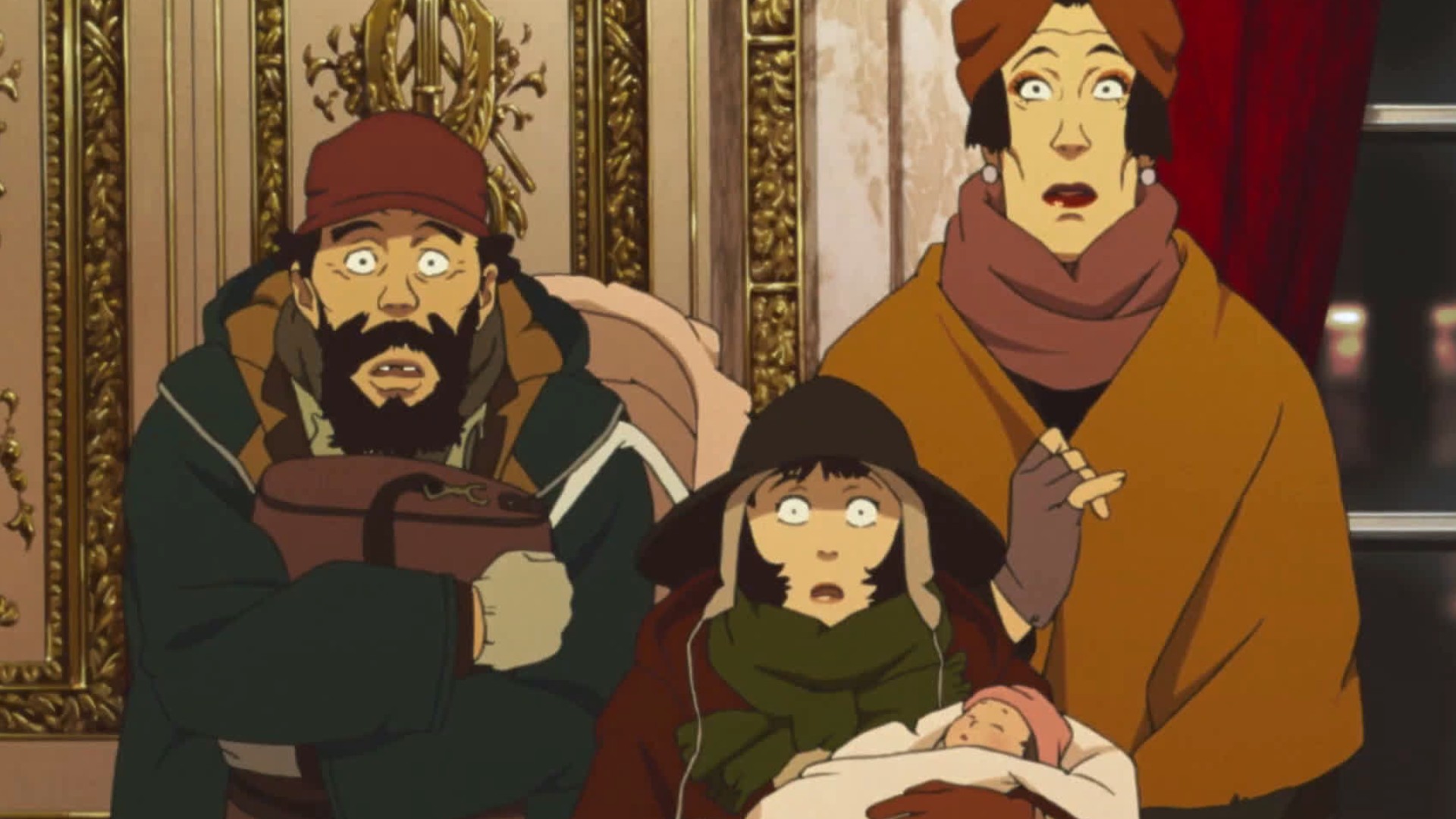
Year: 2003
Director: Satoshi Kon
The first Satoshi Kon feature to appear on this list, Tokyo Godfathers is perhaps the most restrained of the director’s body of work, one that was cruelly cut short by his death in 2010 at age 42. Despite that, the madcap premise (three homeless people – a transgender woman, an alcoholic, and a teenager who has run away from home – adopt an abandoned baby) and its Christmassy spirit ensures it will live long in the memory.
While the story takes its cues from 1948’s 3 Godfathers, the festive energy and Kon’s ever-keen eye for human expression makes it wholly unique as the trio’s Christmas Eve adventure sees them crossing paths with hitmen and attending wedding receptions in a last-gasp dash to find the baby’s parents. It’s not quite It’s A Wonderful Life, but its motley crew of leads will give you the same warm, fuzzy feeling of everything being right with the world by its end.
Still in a festive mood? Here are our picks for the best Christmas movies.
18. Ponyo
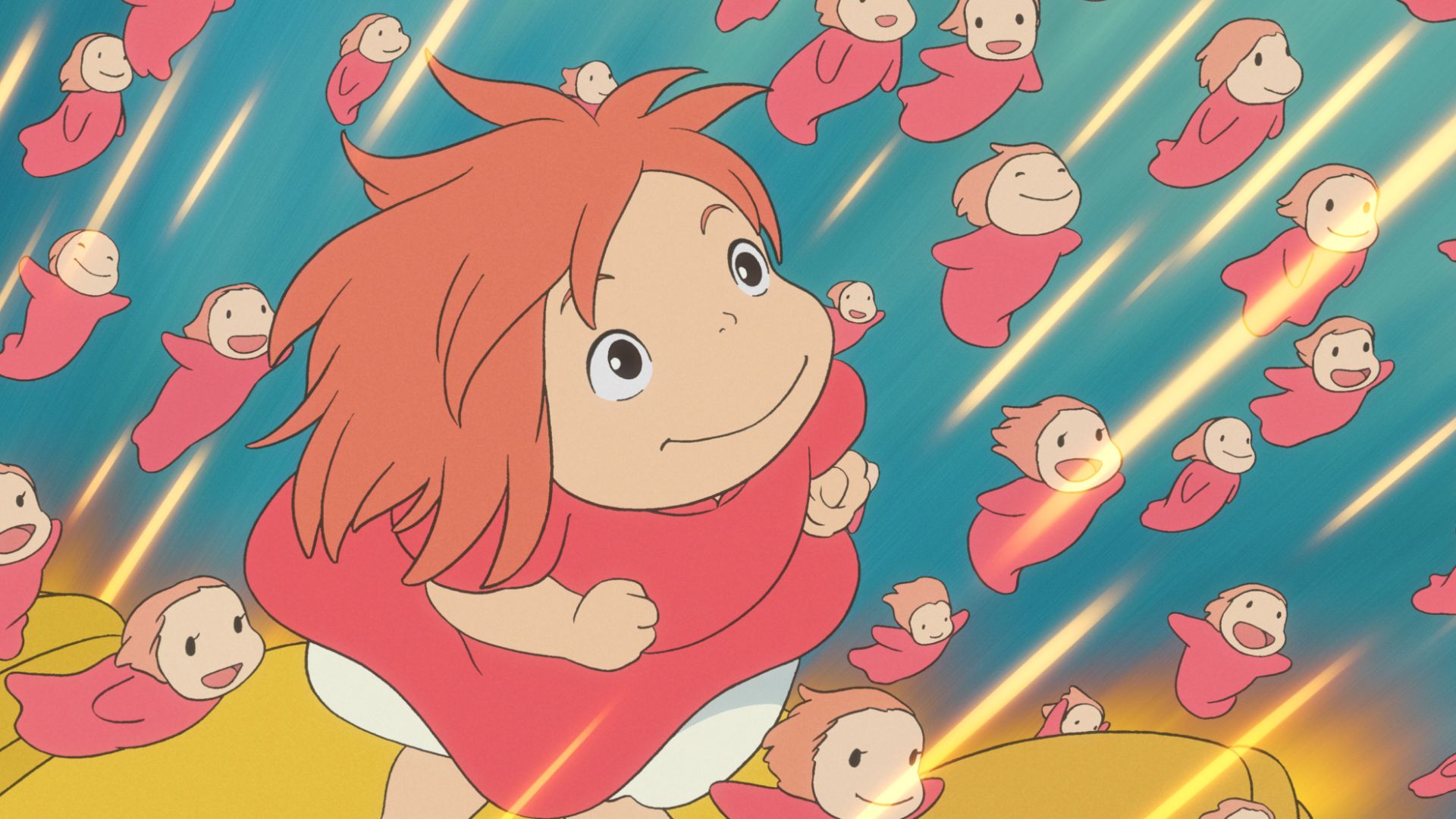
Year: 2008
Director: Hayao Miyazaki
In some circles, Ponyo comes bundled with an unfair reputation as a Studio Ghibli movie aimed at a much younger audience. While the storybook visuals and focus on the wacky adventures of a goldfish named Ponyo and young boy Sosuke might give that impression, this Little Mermaid-style story of a girl wanting to walk on land as a human deserves to be held aloft alongside many of the studio’s other revered works.
Boasting a wonderfully impish energy and director Hayao Miyazaki’s eye for making the mundane into something magical (in this case, a boy-meets-girl story on a coastal town), Ponyo is a joyous aquatic exploration of friendship and first loves, one that might leave a watery tear in your eye by its end.
17. Demon Slayer: Mugen Train
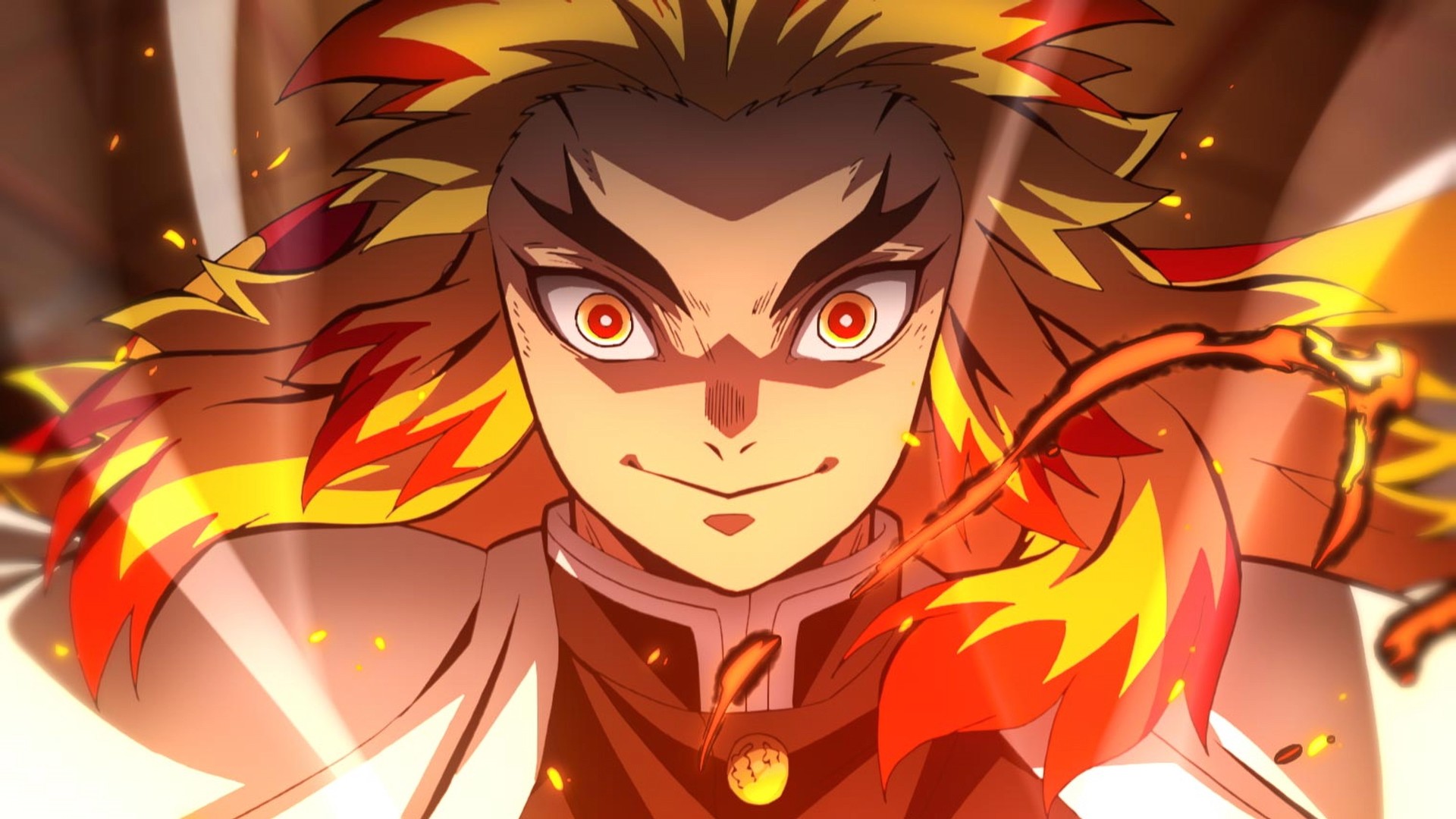
Year: 2020
Director: Haruo Sotozaki
Fun fact: Demon Slayer: Mugen Train is not only 2020’s highest-grossing movie (besting Tenet), but is the highest-grossing anime movie of all time, raking in a cool $500 million at the box office. It certainly deserves to hold that record. Following directly on from the first season of the smash shonen anime, wannabe demon slayer Tanjiro, his sister Nezuko, and his friends – the hot-headed Inosuke and erratic Zenitsu – board a train that is infested by a member of the Upper Ranks, a collection of powerful demons.
Aided by Flame Hashira Kyojuro Rengoku, Tanjiro slithers his way through to the front of the train. What begins as a low-key introspection of its characters soon explodes into a cacophony of sound and fury, as animation studio Ufotable showcases its world-class talents with a series of unmissable fight scenes, tinged with just the right amount of gut-wrenching emotion to make this big-budget affair a bonafide smash – and one that anime series have been trying to mimic in theaters ever since.
Still playing catch-up? Here’s our guide on how to watch Demon Slayer in order.
16. When Marnie Was There
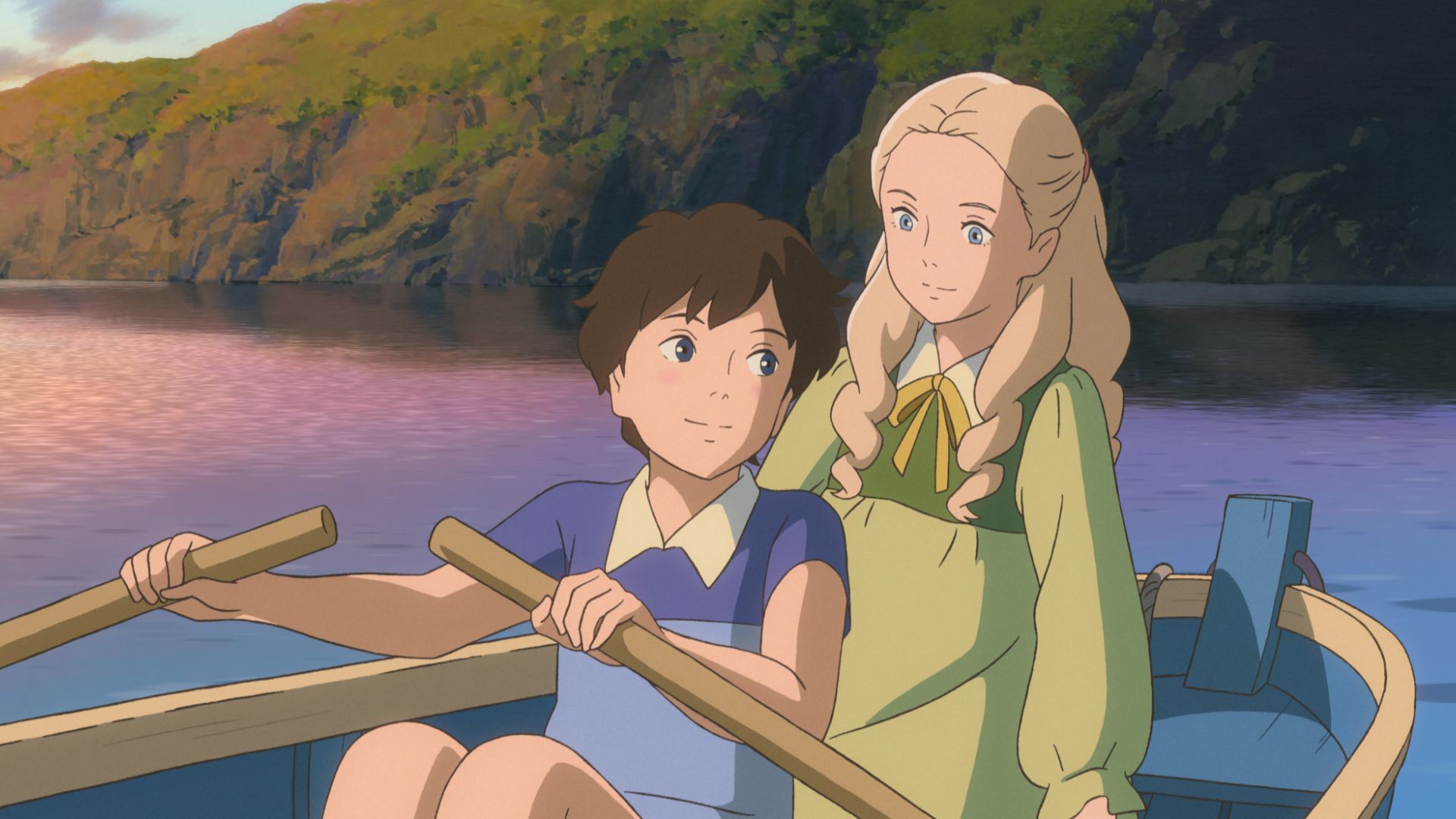
Year: 2014
Director: Hiromasa Yonebayashi
A rare Ghibli directorial effort from Hiromasa Yonebayasi, When Marnie Was There sees sickly 12-year-old Anna sent to live in a quaint seaside community after an asthma attack. While there, she discovers a mysterious mansion across the marshes and one of its residents – the titular Marnie. What follows is a journey sprinkled with self-discovery and the power of memories as the pair bond. It all culminates in an emotionally charged and cathartic ending, one that feels like the happy antithesis of something like Grave of the Fireflies.
When Marnie Was There can make a compelling case for being the most underrated and underappreciated Studio Ghibli movie of all time. Simply put, few can ensnare its audience with such a potent blend of melancholy, drama, and nostalgia; fewer still can execute it with a painterly panache that allows it to stand alongside anime’s greats, Ghibli or otherwise.
15. Wolf Children
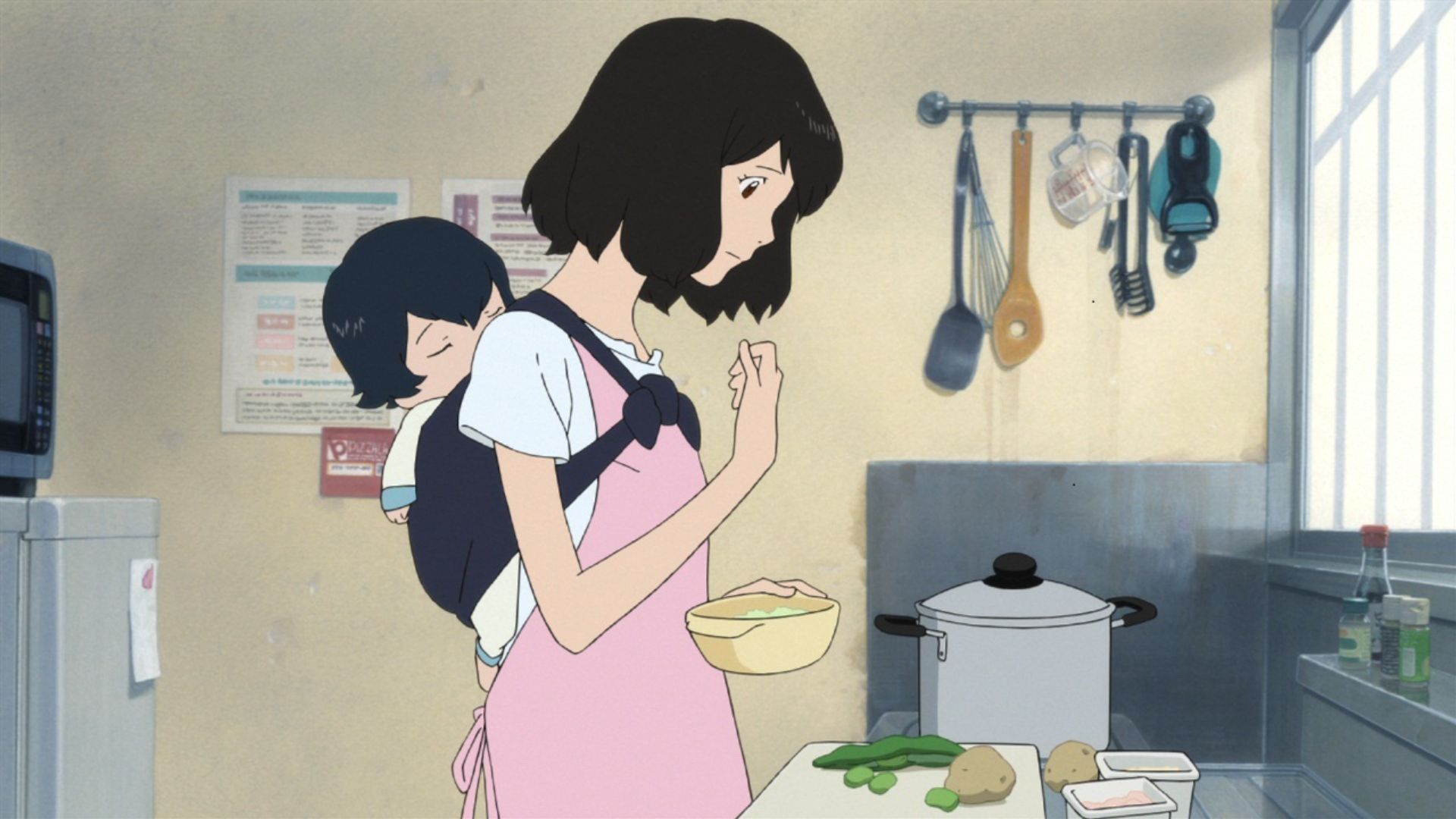
Year: 2012
Director: Mamoru Hosoda
Alongside Grave of the Fireflies – which we’ll meet shortly in this list – Wolf Children stands out as shorthand for anime’s power to emotionally devastate its audience.
While the premise – a woman struggling with raising her half-wolf children as a newly widowed mother – might raise eyebrows, Wolf Children soon rips out your heart as the mother, Hana, battles her children’s primal instincts in this coming-of-age story with a twist. Whether you’re a parent or not, few anime movies will resonate quite as strongly and leave as hard a lump in your throat as this 2012 feature.
14. Ghost in the Shell
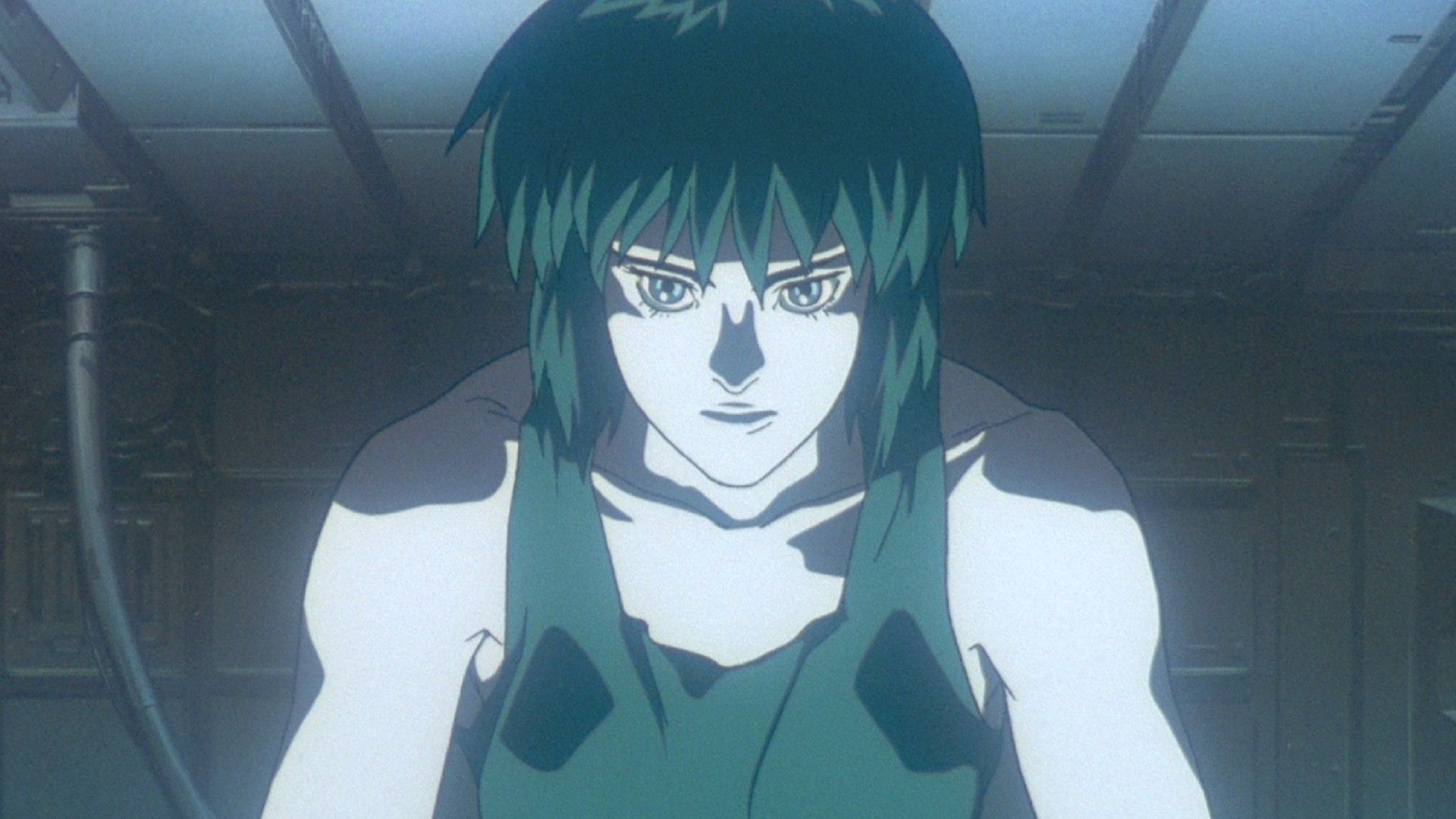
Year: 1995
Director: Mamoru Oshii
Ghost in the Shell’s cultural cache has diminished somewhat in recent years, but its quality still shines through today. The 1995 movie follows Motoko, a synthesized and augmented human working for Public Security who is suddenly hot on the trail of the mysterious Puppet Master. What comes next is one of the quintessential cyberpunk stories, a thriller that digs deep into themes of identity, self-worth, and the looming specter of technology.
Boasting trippy visuals and a haunting philosophical message, there’s a reason why Ghost in the Shell has proved so influential – and spawned several sequels, spin-offs, and an ill-fated live-action movie starring Scarlett Johansson. Still, the original is easily the best, an early pioneer that stands out as essential viewing and an anime classic.
Not every sci-fi classic spawned a franchise. Here are the 32 sci-fi movies that deserved a sequel.
13. Porco Rosso
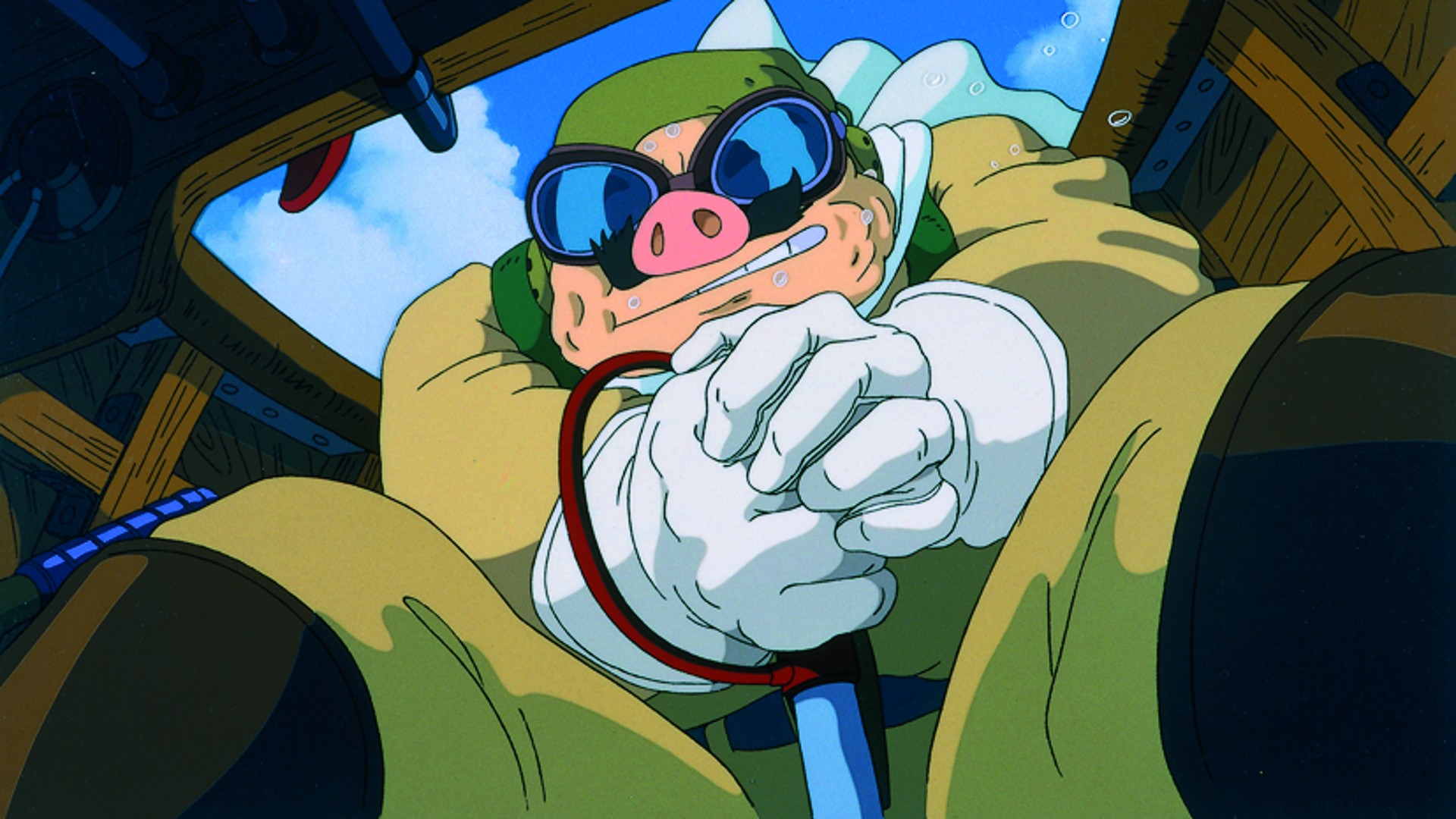
Year: 1992
Director: Hayao Miyazaki
“Better to be a pig than a fascist.” If you only discovered Studio Ghibli through the lens of twee and whimsical adventures, Porco Rosso is going to be a sudden shock to the system. The 1992 adventure combines the fantastical elements of the by-this-point legendary animation studio with director Hayao Miyazaki’s masterful eye for aviation. Here, ex-war pilot Porco Rosso (voiced by Michael Keaton in a remastered dub) tackles the onrushing wave of fascism sweeping Italy in the late 1920s, as well as Porco’s own survivor’s guilt – most memorably depicted in an ‘airplane graveyard’ sequence that stands out as one of Ghibli’s finest, most striking sequences.
Despite the heavy subject matter, Porco Rosso is wickedly funny and grounds itself in the sort of charm, personality, and sass of old-school adventure movies, which allows it to soar further than most of Ghibli’s efforts. It’s a rip-roaring, bombastic flight for the ages and one that, most importantly, wears its political heart on its sleeve.
12. Suzume
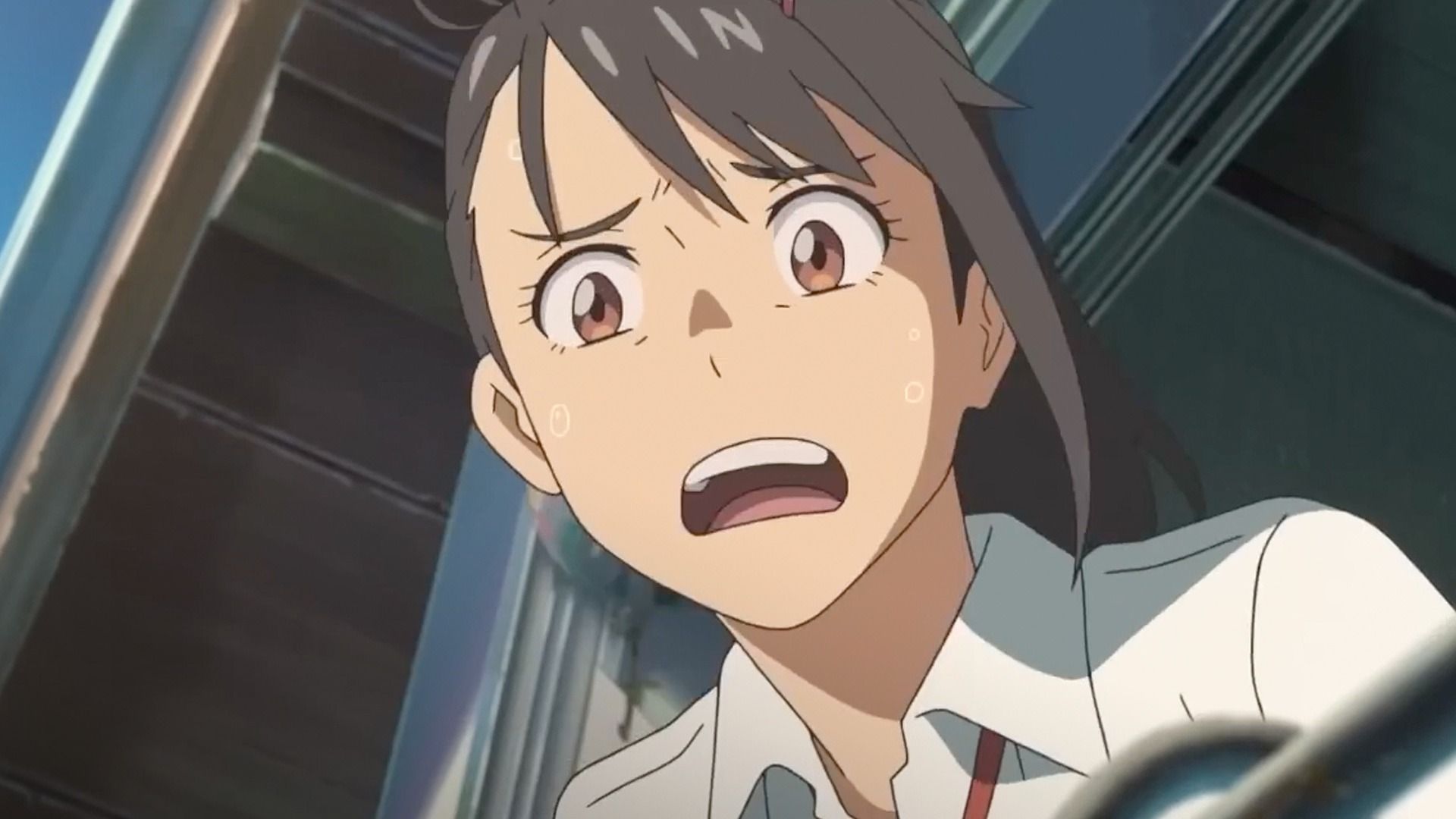
Year: 2022
Director: Makoto Shinkai
Despite being a shade less accomplished than his other major works, Weathering With You and Your Name, director Makoto Shinkai solidifies himself as a true anime great with Suzume, a coming-of-age tale that sees the titular teenager drawn into a grand road trip odyssey across Japan. After mysterious doors pop up across the country to cause ecological disasters, Suzume is soon whisked away on an adventure to save the day with experienced (door) ‘closer’ Souta – who is hamstrung by the most peculiar of circumstances after being turned into a three-legged chair. Hey, we’ve all been there.
Showcasing Shinkai’s ability to mix personal stakes with world-ending scenarios, Suzume breezily hurtles towards its final act, a surprisingly emotional bump in the road as her own family tragedy intertwines with the very real disaster – known as 3.11 – that hit Japan in 2011. It’s to Shinkai’s credit that Suzume might not even crack his top two; even so, Suzume is a work that shouldn’t be ignored.
Check out our Suzume review for more insights into this must-watch.
11. Weathering With You
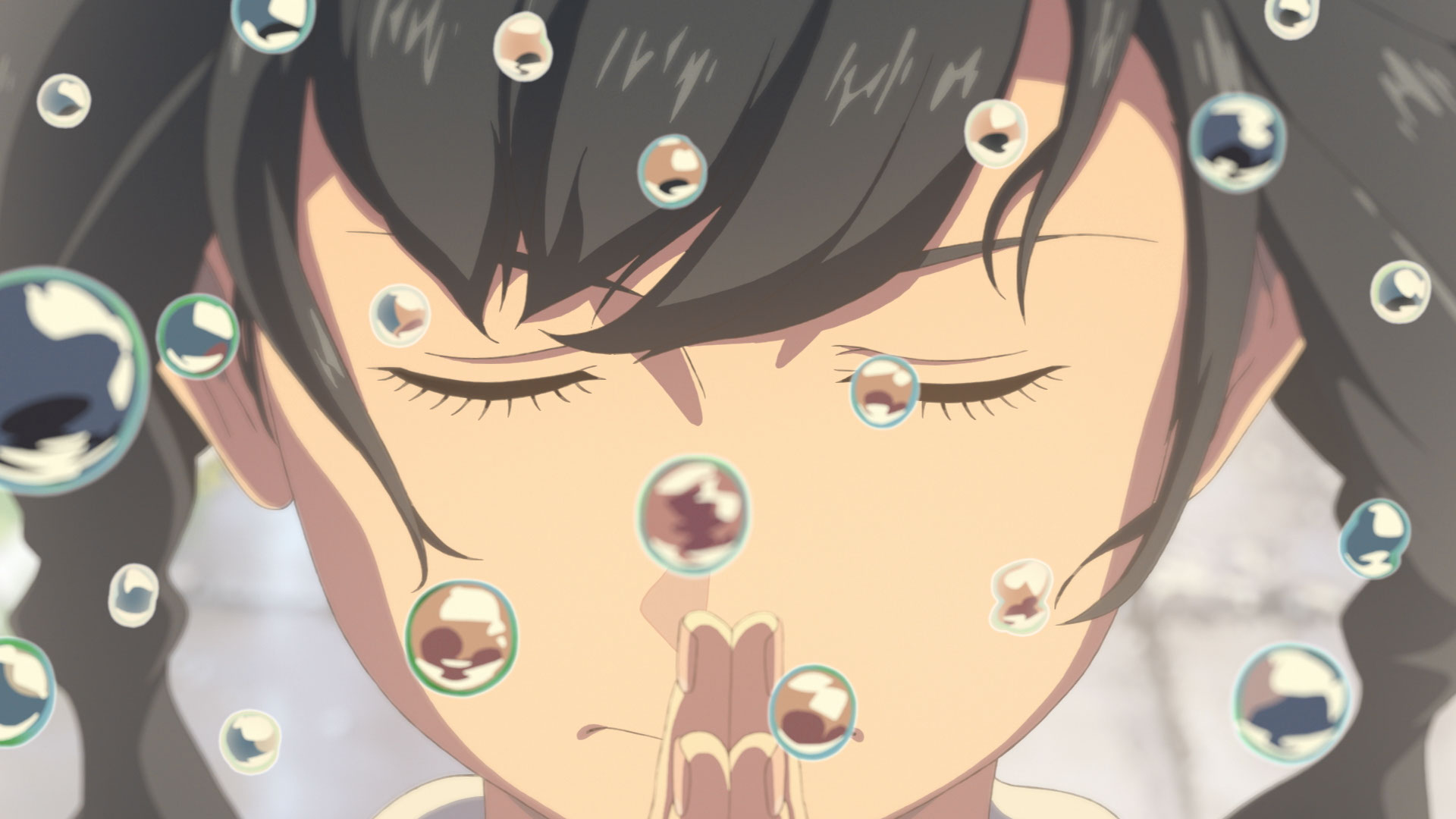
Year: 2019
Director: Makoto Shinkai
Following up on a work as esteemed as Your Name is an unenviable task, but director Makoto Shinkai delivered on the heavy weight of expectation. Weathering With You may follow similar beats in its supernatural love story, but it soon twists into a city-spanning tale that will leave you in floods of tears and send your heart soaring. Weathering With You follows Hodaka, a teenage runaway who flees to Tokyo.
While there, he crosses paths with ‘sunshine girl’ Hina, who can seemingly influence the weather. In need of money, the pair team up to offer out Hina’s services – a decision that comes at a terrible cost. Yes, it may not live up to the impossible heights of Your Name, but Weathering With You is an exceptional movie in its own right, one that improves on the director’s previous classic in terms of presenting a more mature central relationship, if not quite having as satisfying a payoff.
10. The End of Evangelion
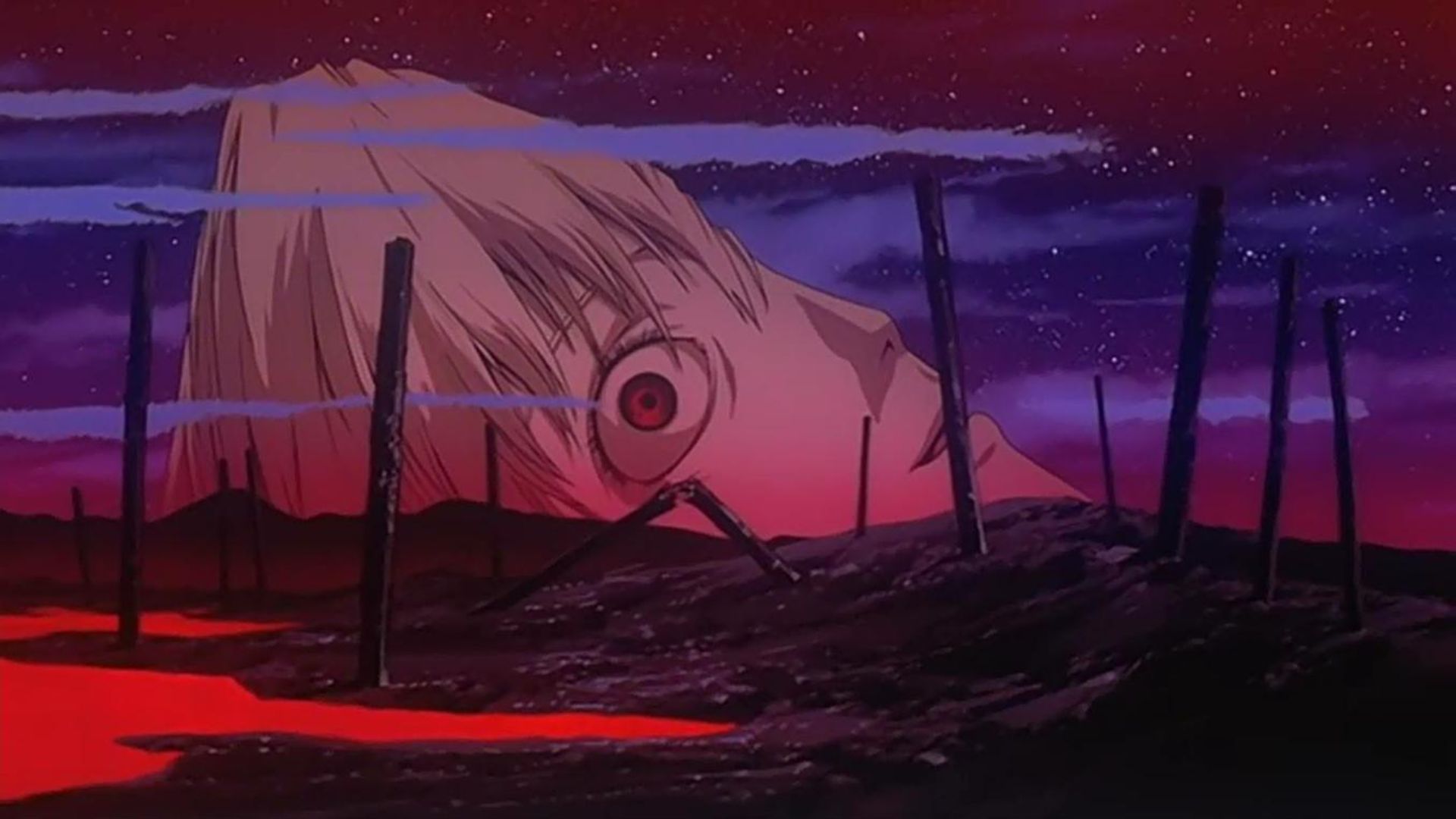
Year: 1997
Director: Hideaki Anno, Kazuya Tsurumaki
Neon Genesis Evangelion, famously, crashed against the very confines of the television medium to craft a controversial finale that brought teen Shinji’s story to a close with an experimental blend of ennui, back-slapping, and mech action. Whatever their good intentions may have been, it was clear that time, budget, and audiences’ patience were running thin. The End of Evangelion, then, is a welcome do-over. As Shinji fights to stop the apocalyptic Third Impact from taking place, he is thrust into the end of all things – here visualized through a nightmarish menagerie of towering robots and world-dwarfing protagonists.
While it doesn’t dig as deep into Shinji’s psyche as the TV anime, it more than makes up for it with a bleak, oppressive final battle that ensures the series’ flawed individuals don’t escape unscathed. It’s all topped off with a final sequence between Shinji and Asuka that speaks more to Neon Genesis Evangelion’s cruel streak than the sickly sweet ‘congratulations’ fanfare of the original.
Don’t miss out on Evangelion’s sprawling story with our look at how to watch Neon Genesis Evangelion in order.
9. Millennium Actress
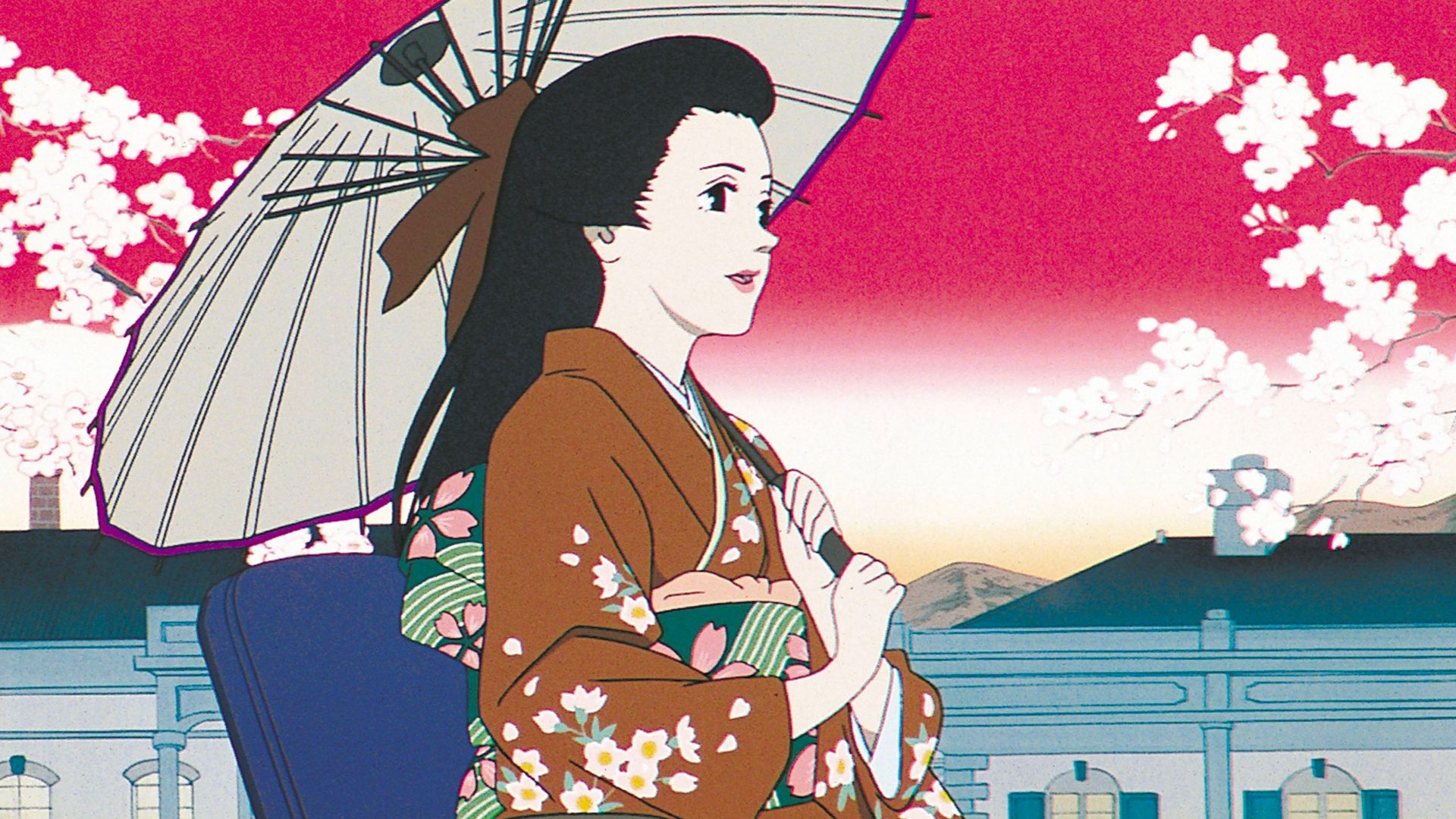
Year: 2001
Director: Satoshi Kon
If you want a case study on what anime can achieve compared to its live-action cousins, look no further than Millennium Actress. The late director Satoshi Kon takes up multiple spots on this list, but few are as imaginative and push the boundaries of the medium quite like this 2001 movie. Focusing on an actress long since retired, Millennium Actress takes a straightforward premise – a retrospective interview – and injects it with passion and purpose, as the actress Chiyoko drags both the documentary crew and the audience through her life story, from humble beginnings, to post-World War Two stardom, and through to its tragic end.
Millennium Actress is so much more than a personal tale, however. It’s a love letter to cinema and Japanese history, a kinetic, singular vision masterfully guided by a director in Kon whose loss is still keenly felt, some 15 years after his passing.
8. My Neighbor Totoro
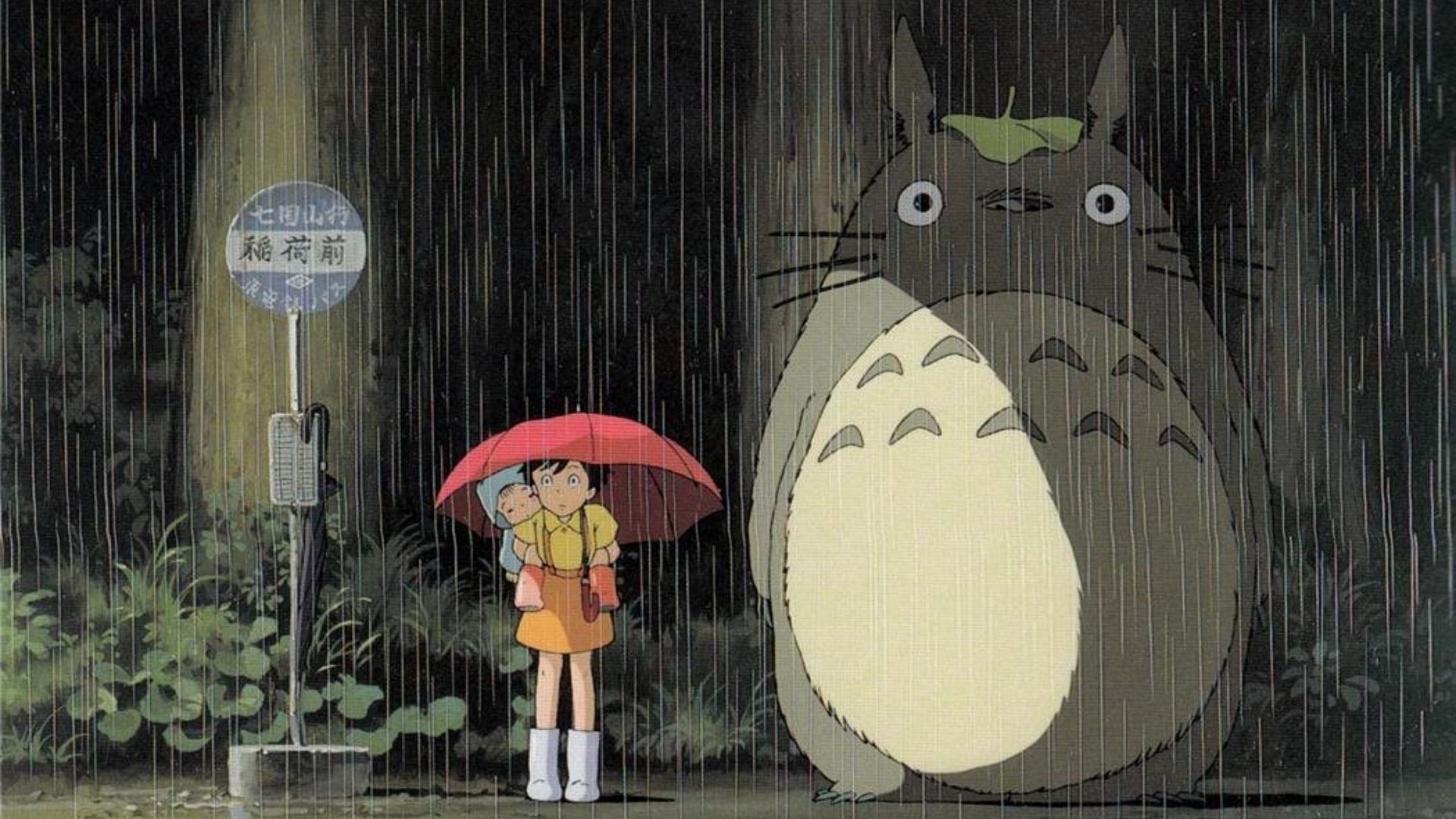
Year: 1988
Director: Hayao Miyazaki
Think Studio Ghibli, then chances are you’re probably thinking of My Neighbor Totoro. After all, there’s a reason why the cat-like Totoro has endured as a cinematic icon for decades and its unforgettable cat bus scene has formed part of anime canon ever since its wheels started turning back in 1988. But what that iconography doesn’t reveal is what’s hiding under the hood – and the hidden corners of this magical animated world.
As Satsuki and younger sibling Mei struggle with their mother being cooped up in hospital, they each stray a little too far from their new home and soon encounter a hidden world filled with spirits. What follows is an impossibly charming, childlike creation that takes director Hayao Miyazaki’s bottomless well of imagination and fuses it with a storybook world filled with mischievous soot sprites, glistening forests, and – at the center of it all – Totoro, a grinning cat. A towering anime that rightfully stands the test of time, it’s a monument to not only Miyazaki and Ghibli’s works, but its enduring charm means it continues to enrapture new generations of audiences, both young and old decades on.
7. Akira
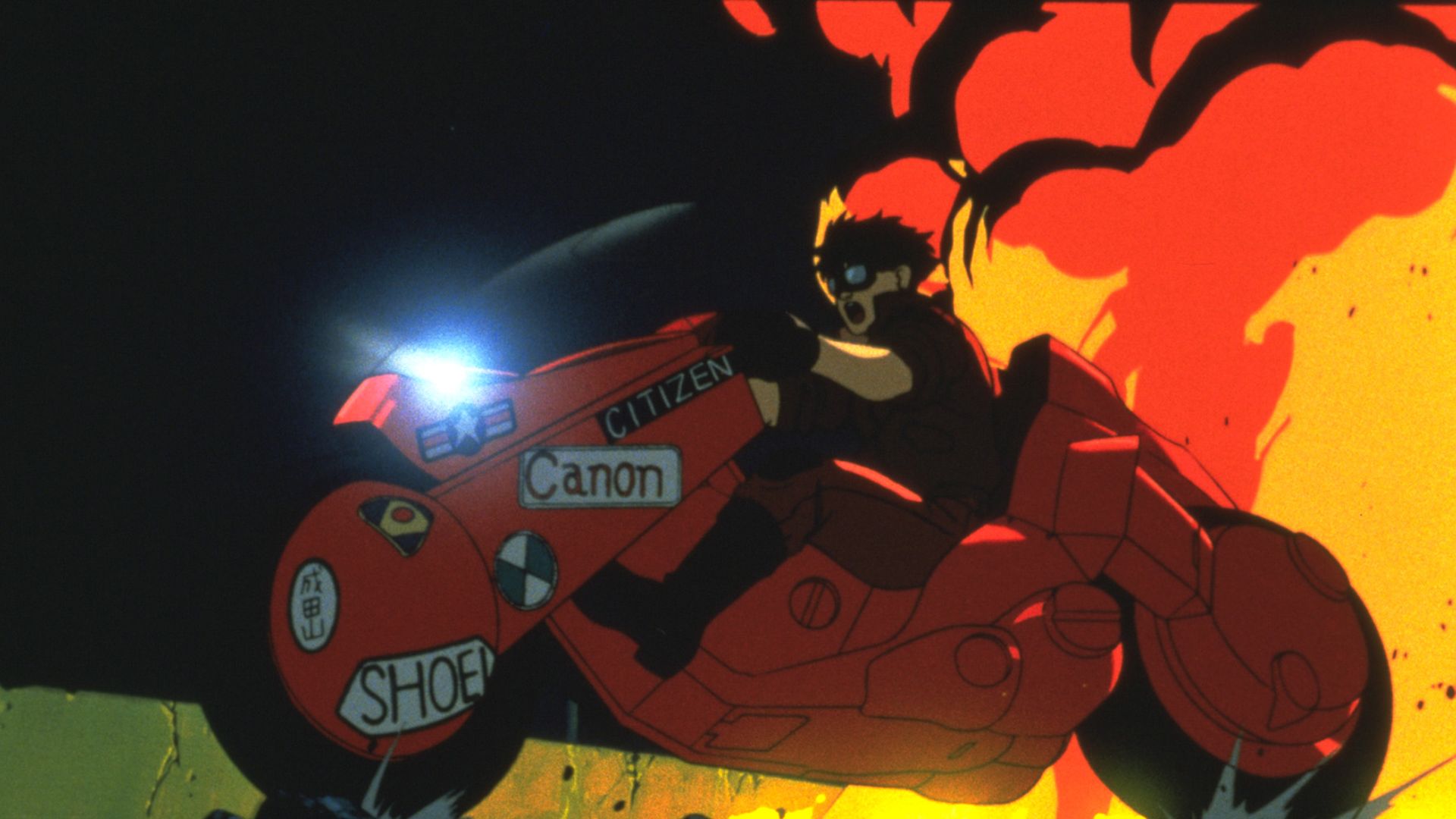
Year: 1988
Director: Katsuhiro Otomo
Widely regarded as the most influential anime movie of all time, Akira has inspired the likes of Jordan Peele and Hideo Kojima, while the iconic ‘Akira slide’ has been a pop culture mainstay ever since its release. But Akira is so much more than its imitators. A cyberpunk epic, the 1988 anime movie centres on Kaneda and his friend Tetsuo, who gains dangerous psychic abilities after an accident.
With the cold, hard edges of the wiry Neo-Tokyo as their backdrop, the pair are soon drawn into a conspiracy involving the military, secret experiments, and the fate of the dystopian city itself. At face value, it’s a compelling, fast-moving thriller but, look beyond that, and you’ll see Akira for what it truly is: a legendary anime that stretches its tendrils across decades, shaping movies, TV shows, and video games long past its ‘future’ 2019 setting. Many have tried to copy Akira’s fantastic fusion of style and metal; none have bettered it.
6. Grave of the Fireflies
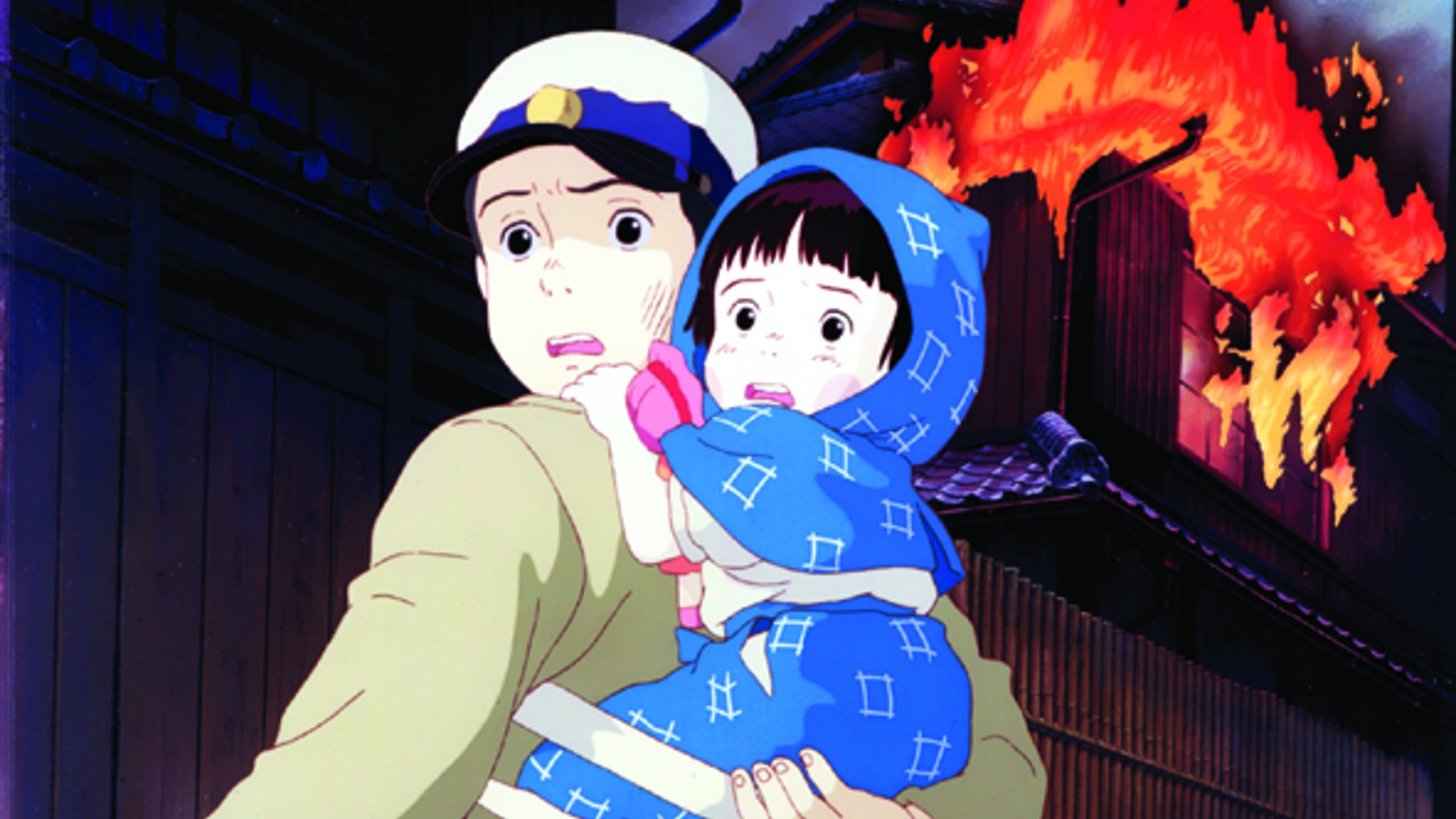
Year: 1988
Director: Isao Takahata
In many ways, Grave of the Fireflies is the antithesis of what Studio Ghibli is known for. Out goes the fantastical elements and breathtaking imagery in favor of a grounded, bleak story centered around orphans Seita and Setsuko and their battle to survive during the dying embers of World War Two. Placed in a bizarre double bill with My Neighbor Totoro upon its release – yes, really – Grave of the Fireflies’ reputation as the ultimate day-ruining anime movie is well-earned.
Yet, it’s so much more than its devastating set-up and crushing ending: Grave of the Fireflies, through its two leads, digs into the psyche of a nation still healing from the battle in the Pacific and is staunchly, poetically anti-war as a result. It’s a haunting (and hauntingly beautiful) tale that will stay with you long after the credits have rolled. No, it’s not what you might expect from Studio Ghibli – but it’s guaranteed to make you cry.
5. A Silent Voice
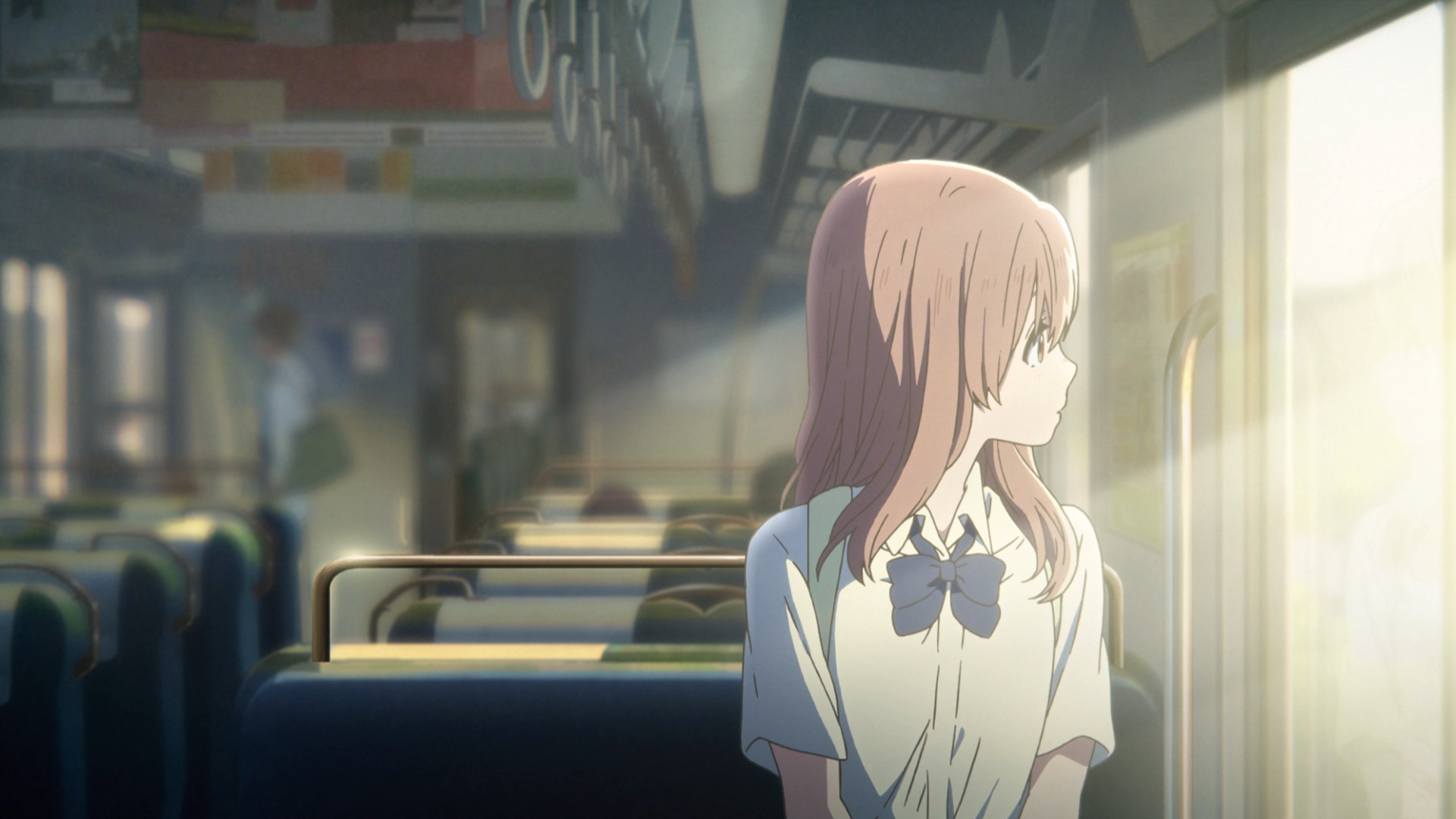
Year: 2016
Director: Naoko Yamada
There are only a handful of movies that I love so much, yet never want to see again. One – Grave of the Fireflies – you’ve just met on this list. The other is A Silent Voice, a supremely confident and emotionally affecting debut from director Naoko Yamada. A shattering exploration of childhood bullying and its impact later in life, A Silent Voice revolves around Shōko, a deaf girl who is relentlessly harassed by her schoolmates – later to the point of suicidal ideation.
Yet, A Silent Voice isn’t all about the bleak horrors of growing up. In a smart twist, the story moves hurriedly along to years later as one bully – since shunned by his peers – attempts to reconnect with Shōko. That’s the simple set up for a genuinely life-affirming story (not something I say lightly) that preaches love, kindness, and connection over hate, anger, and rejection. You may never want to watch A Silent Voice again after your first watch, but you’ll be glad you did.
4. Perfect Blue
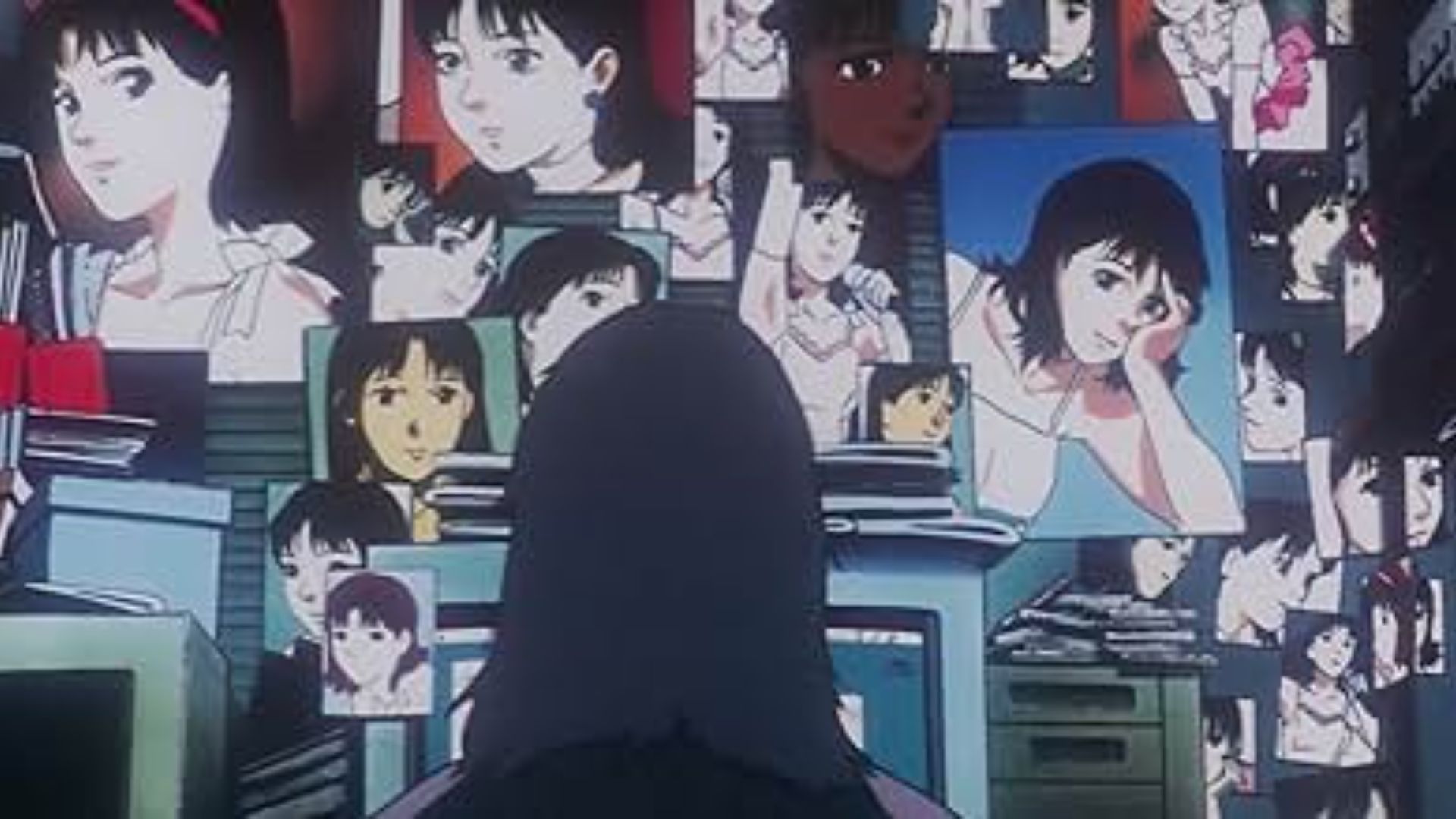
Year: 1997
Director Satoshi Kon
Satoshi Kon’s psychological masterpiece might be the best anime movie you’ve never seen. Perfect Blue is a disturbingly prescient film – and a perfect companion to Belle, another entry on this list – that focuses on Mima, a popstar-turned-actress who is relentlessly pursued by an obsessive fan and has her personal details listed on a website called ‘Mima’s Room’. A smothering, suffocating fever dream of a feature, Mima’s journey soon sees her encounter “the real Mima”, a ghoulish reflection of her past life.
Perfect Blue then unravels into a horror movie laced with punchy commentary on jealousy, self-identity, and overwhelming celebrity fandom. Arguably, it’s even more relevant today than it was back in 1997. Never allowing Mima or its viewer time to settle, Perfect Blue also comes bundled with one of the most disturbing final reveals, one that’s brilliant Lynchian in its final rug pull and rivals the likes of Inception for just how much it’ll worm itself into your brain days, months, and even years after you’ve first watched it.
Love terror? Read our list of the best horror movies of all time.
3. Spirited Away
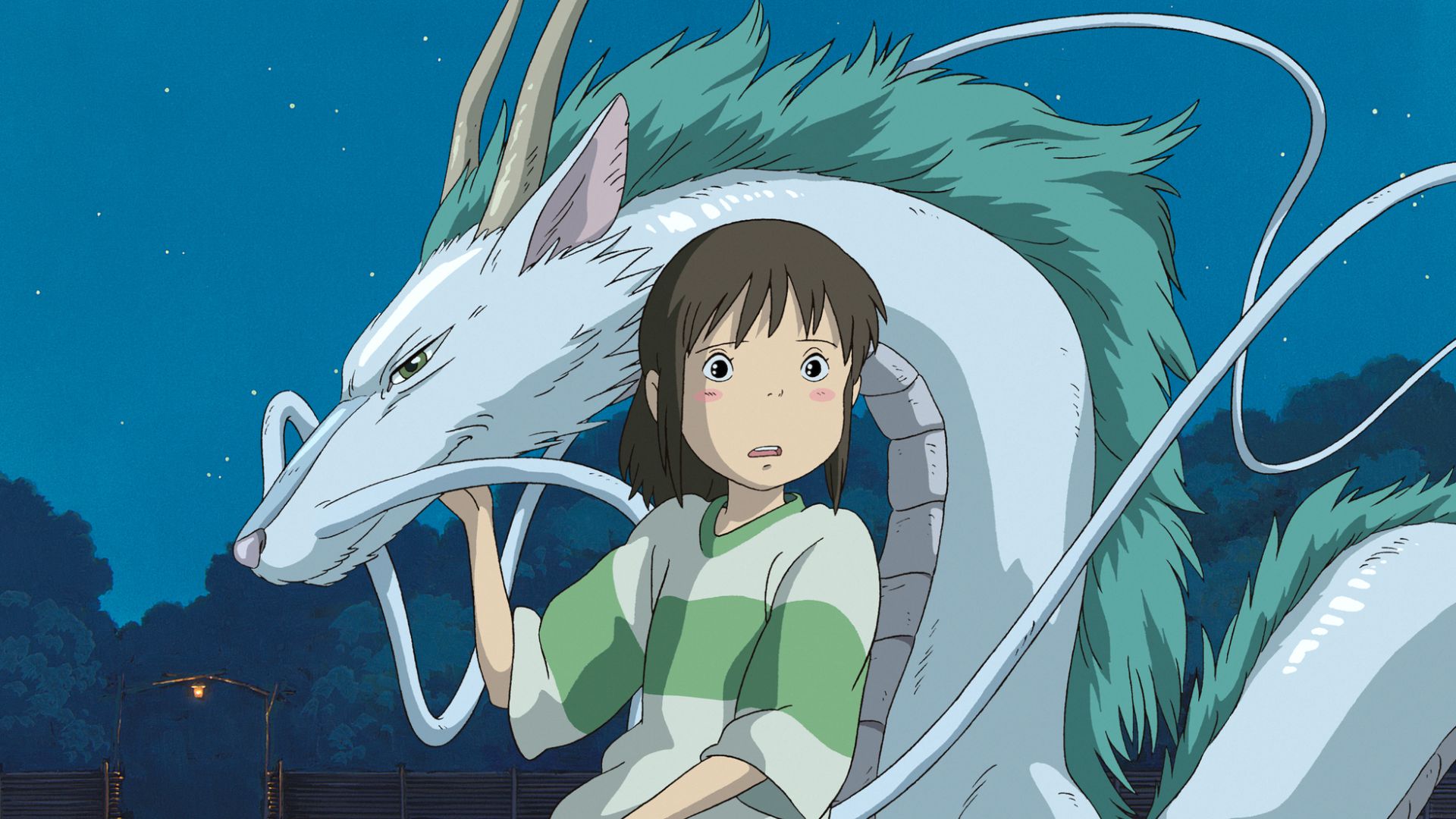
Year: 2001
Director: Hayao Miyazaki
By every definition, Spirited Away is a juggernaut. Grossing almost $400m at the box office, winning the Oscar for Best Animated Feature (the first non-English film to do so), and widely seen as one of anime’s most enduring achievements, this fantasy adventure is teeming with enough imagination for 10 movies – yet somehow finds a way to cram it all into a tight two-hour epic. Not that you would have guessed from Spirited Away’s restrained opening, which sees Chihiro – nervously on the way to her new home with her parents – stepping into a new world filled with monstrous pigs, mischievous gods and, at its centre, a bathhouse housing the great and not-so-great denizens of the spirit world.
Spirited Away then explodes into a carousel of color and chaos as Chihiro struggles to find her way home and to free her parents. Along the way, she (and viewers) are met with the iconic No-Face, a devious spirit who accompanies Chihiro partway through her journey. So, yes, Spirited Away is a giant of cinema – but that far-reaching legacy betrays the magical genius coursing through the veins of each frame and sequence in this anime all-timer.
Read our Spirited Away review for more details!
2. Princess Mononoke
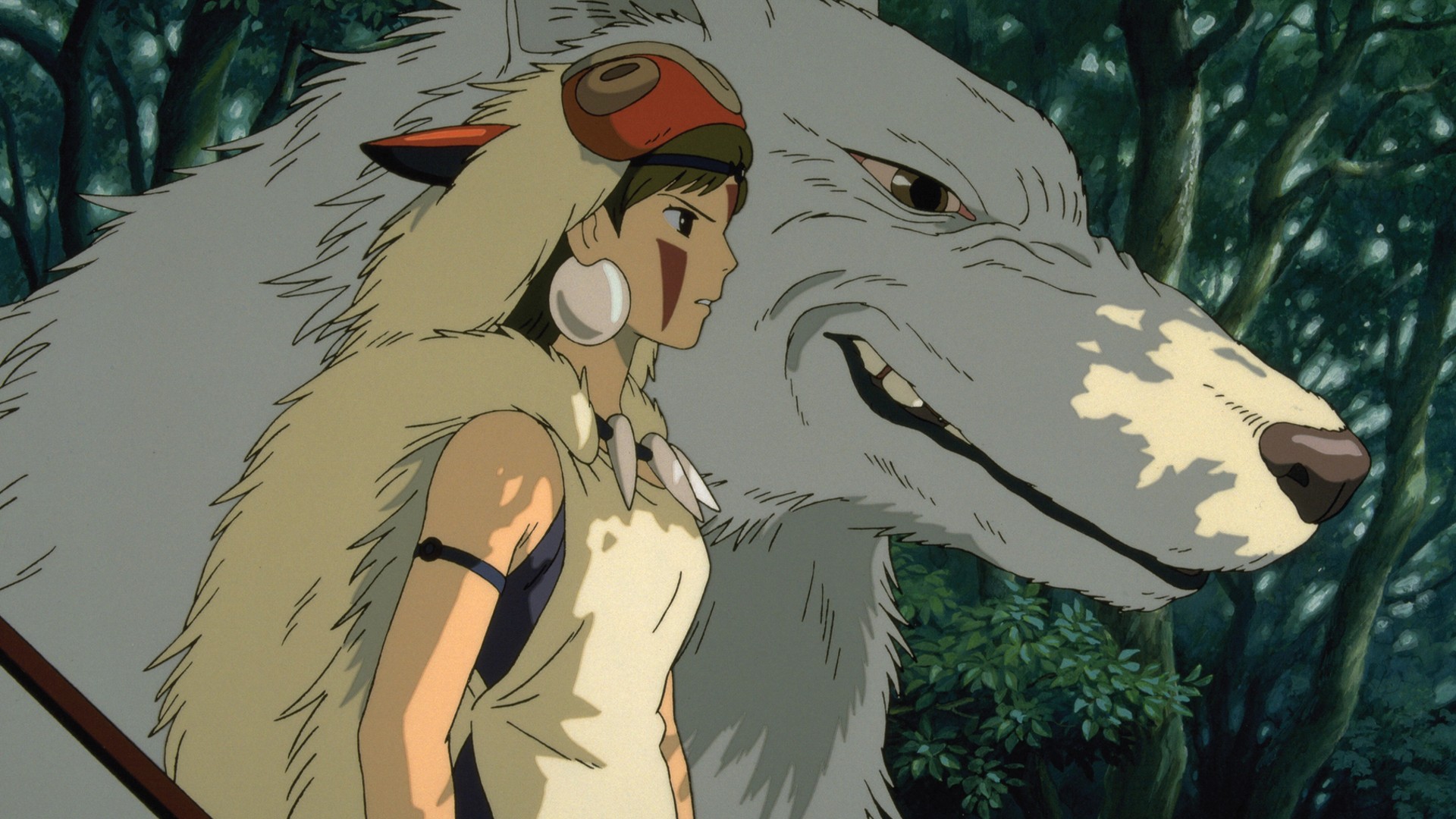
Year: 1997
Director: Hayao Miyazaki
Despite being pipped to top spot, Princess Mononoke is an undoubted all-time great. The Muromachi-era fantasy revolves around an onrushing evil, one that literally clings to protagonist Ashitaka’s arm and never lets go after he defeats a demon in the opening act. From there, he heads west to Iron Town, a settlement of working women and lepers caught in a crossroads between its ruler’s strong will and the oozing corruption of the land. That sets the stage for an epic that feels like peak Ghibli. Why? It refines some of the studio’s previous environmentalist messages in works such as Nausicaa of the Valley of the Wind and delivers fearsome set piece after fearsome set piece, something that was only glimpsed in Porco Rosso.
If My Neighbor Totoro put Ghibli on the map, Princess Mononoke cemented it as a legendary collection of artists, storytellers, and creative visionaries. Princess Mononoke’s greatest triumph, though, may be in how it influenced a new generation of stories. Everything from Avatar to The Legend of Zelda has been touched by Ashitaka’s journey from headstrong hero to aiding San and The Great Forest Spirit. It’s also everything you could want from an anime movie – imaginative visuals, exceptional world-building, strong morals – all rolled into one action-filled package.
1. Your Name
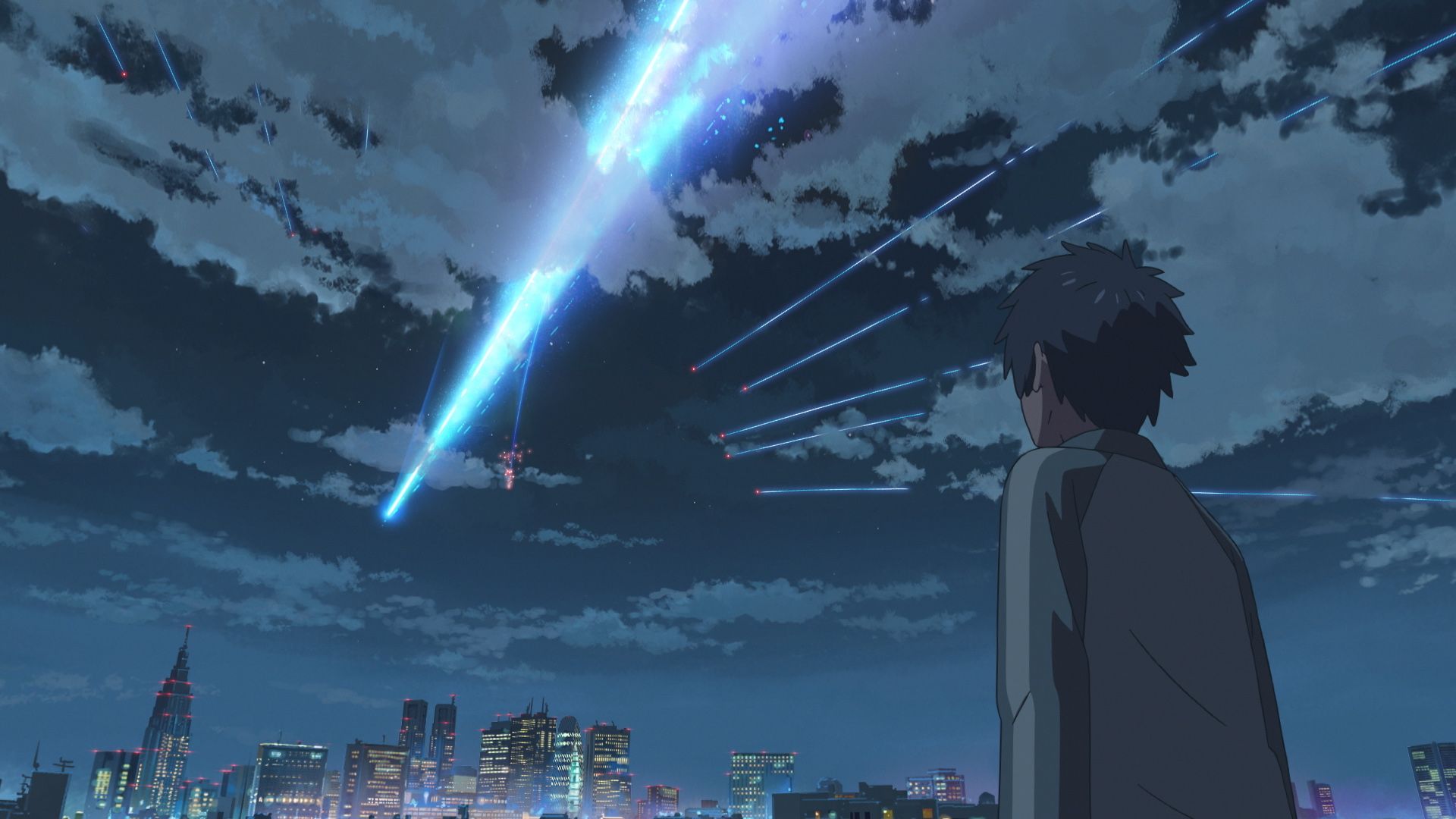
Year: 2016
Director: Makoto Shinkai
Your Name is our pick for the best anime movie of all time and, frankly, it’s also one of the best movies of all time. Period. The 2016 classic revolves around, initially, the simplest of sci-fi premises: a city boy (Taki) and a rural girl (Mitsuha) switch bodies. Inevitably, hijinks ensue. But, around 20 minutes in, Your Name takes a turn from a light-hearted Freaky Friday-style adventure into something more powerful – transforming into a tale that chisels away at the human condition and a pair of slightly damaged people caught at the crossroads of fate, circumstance, and tragedy.
Director Makoto Shinkai, though, is the one who takes this into all-timer territory. Case in point, his innate ability to skilfully bamboozle the viewer. Your Name’s body-switching premise is filled with misdirects, but the entirety of the movie is littered with the sort of narrative rug-pulls and sleight of hands that are the result of a master at work. M. Night Shyamalan, eat your heart out. The failed attempts to drag Your Name into live action – arguably the easiest Hollywood home run of all time if done correctly – would also indicate that this masterpiece is perfectly suited to its form.
The potent alchemy of Your Name, from its dazzling visuals as comets streak through the sky to the gentle soundtrack by Radwimps that punctuates the movie’s most heartbreaking moments, is something that can never truly be replicated. If you only watch one anime movie on this list, make it Your Name. It’s something truly special.
Read our five-star Your Name review for more information on our top pick for the best anime movie of all time.
Look ahead to what’s coming down the line in the anime world with our guides to Solo Leveling season 2, One-Punch Man season 3, and Demon Slayer Infinity Castle.
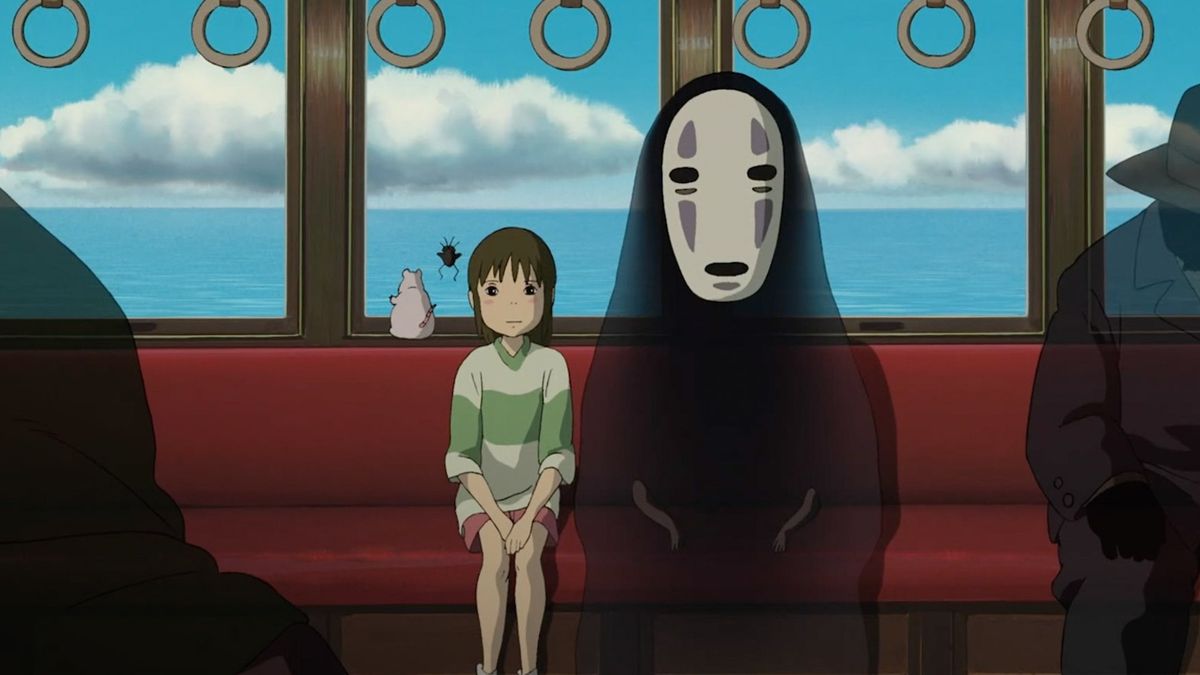
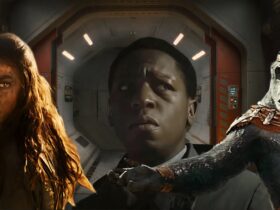


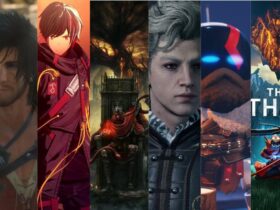
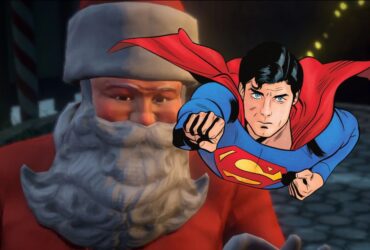
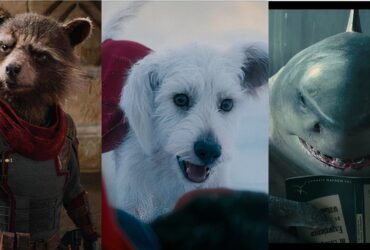
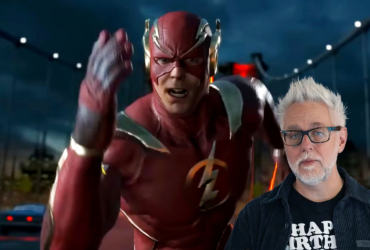
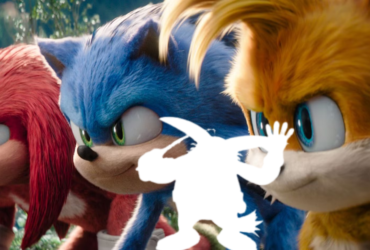
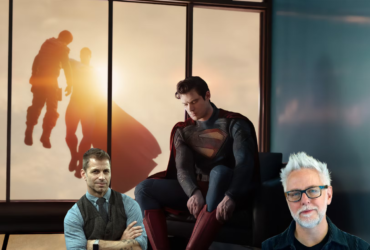
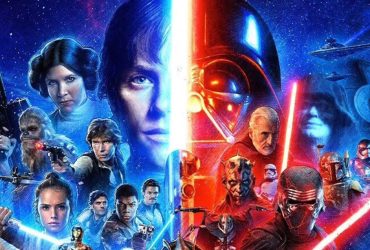
Leave a Reply